Having ended 2024 opening for popular American indie band VAMPIRE WEEKEND at London’s Brixton Academy plus their usual seasonal appearances at The Cavern in Liverpool, 2025 sees CHINA CRISIS busier than ever on the live circuit.
Gary Daly and Eddie Lundon started CHINA CRISIS in 1981; signing to Inevitable Records who launched the careers of WAH! And DEAD OR ALIVE, their debut single ‘African & White’ was championed by John Peel. CHINA CRISIS were picked up by Virgin Records and on the release their first album ‘Difficult Shapes & Passive Rhythms, Some People Think It’s Fun To Entertain’ in 1982, the pair were opening for SIMPLE MINDS with the profile helping to achieve their Top20 breakthrough ‘Christian’.
The second CHINA CRISIS album ‘Working With Fire & Steel – Possible Pop Songs Volume 2’ produced by Mike Howlett spawned their biggest hit single ‘Wishful Thinking’ in 1984. But a fresh approach the following year saw their third album ‘Flaunt The Imperfection’ produced by Walter Becker of STEELY DAN fame. With the subsequent tour featuring what is often considered the classic Chinas line-up of Daly and Lundon with Gazza Johnson on bass, the late Kevin Wilkinson on drums and Brian McNeill on keyboards, this most successful of the CHINA CRISIS long players celebrates its 40th Anniversary in 2025.
With show formats ranging from synthpop quartet to full 9 piece band, today the live nucleus includes keyboard player Jack Hymers and saxophonist Eric Animan; the pair were involved in the recent reworks collection ‘China Greatness’ issued on independent label Last Night From Glasgow. It took CHINA CRISIS back into the Top10 of the UK album chart for the first time since 1985.
ELECTRICITYCLUB.CO.UK had a long entertaining chat with Gary Daly over a game of Vintage Synth Trumps about the workings of CHINA CRISIS through the years and much more…
The first card is a Roland SH-3a…
Oh gosh, I know nothing about that AT ALL! I didn’t know it existed!
It is a rare one, but I saw a synth that you used from the Roland family on your solo album ‘Gone From Here’, the RS-202 String Machine…
That belongs to my friend Chris Barlow from Manchester, he would have brought that to the session and known his way around it. It was great, we had David Berger who was the engineer and also the drummer in a band called OUTFIT, he’s Swiss-French and lives in Liverpool.
What we were trying to do was recreate the Bowie / Fripp / Eno thing. So David would be engineering and sort of messing the sound as we went along, then Chris who knew the equipment inside out and there was me trying to come up with the lines and melodies to the song. It was a lovely way of working, it was very productive because we knew what headspace we were in, so it was “let him get on with this, you get on with that and I get on with this”, it really does free you up if you work as a team with synthesizers.
You said a few years ago that one of the early influences on CHINA CRISIS was MAGAZINE and their keyboardist Dave Formula had a Roland RS-505 which superseded the RS-202…
I would have seen Dave playing it! I would have seen them a lot… I originally saw them at the De Montford Hall, then The Empire. It was always with John McGeoch on guitar, Barry Adamson on bass, I thought they were amazing, there was something about them. I’ve just got the MAGAZINE boxed set for Christmas.
I’d listened to a lot of prog rock and my favourite ones were the keyboard-based bands like YES… although they are not considered “a keyboard band”, I consider them a keyboard band because of Rick Wakeman. I liked ELP and even HAWKWIND as they were a bit sonically synthesized. So when I moved to new wave, that’s what helped because there was the likes of MAGAZINE who were a bit rocky and a bit proggy, but it was new enough for me to go “oh, that’s not what I’ve been listening to, it’s almost punk”.
Around that time, everyone was using synths differently. There was SIMPLE MINDS’ Mick MacNeil, Vini Reilly in THE DURUTTI COLUMN along his guitars, OMD, THE HUMAN LEAGUE, HEAVEN 17, all these people I suspect had no formal training and were all self-taught, inspired by KRAFTWERK and all of that. It became that we could do it as well.
It’s interesting to look back now that all these groups were lumped in together as “synthesizer bands” but who all sounded so different, which perhaps isn’t so much the case now… so you’ve mentioned John McGeoch, Dave Formula and Barry Adamson, so did you like VISAGE?
I did, I bought the records when they came out and I was so excited about it. But I was originally put off for a little bit by the New Romantic thing, I didn’t really like seeing members of MAGAZINE in there, I wanted them to be completely MAGAZINE…
So you wanted them to do another ‘Sweetheart Contact’! *laughs*
Oh my god, absolutely!
What about Midge Ure and Steve Strange’s involvement in VISAGE?
I wasn’t too keen on Midge Ure at the time, only because he seemed a gun for hire, I knew of SLIK and RICH KIDS so I was like “What the hell?”; Midge was a bit of a “Mexican flea”, jumping from one act to another… obviously Midge is amazing and the sound of VISAGE.
D’ya know what? We actually met Steve Strange about 12 years ago, we did this gig with him at the O2 and he had to share a dressing room with us! We had a few people in the band then who were quite badly behaved with various stimulants and what not! And that poor guy Steve is trying to recover from all manner of addictions and our band are bouncing off the walls before even going on stage! *laughs*
Steve seemed really lovely, I wish I’d met him before and it would have been nice to chat, we did a tribute gig to him in Port Talbot with all these friends of his after he’d passed. He was like one of those little figures, there he was in the video to ‘Ashes To Ashes’, that was an amazing song and put Bowie totally in the ball park of new wave. But the fact that Steve was there walking on the beach with him in that weird video effect, it made you think “oh, he’s not just a Blitz Kid”!
The thing is, in the North, we had a very negative view of that whole New Romantic thing, we thought “why would you do that in front of your music?” without realising you could do anything. We weren’t brought up in families like that where you were encouraged to be as individual as possible or to express yourself as much as you want, with synthesizers or without. Ours was big working class families, Eddie was one of 10, I was one of 8! EVERYONE went to work, the fact that me and Ed ditched our jobs at 17 was AN OUTRAGE because everyone went to work, but we stayed at home and tried to come up with these songs all that time.
Another card, this one is the Roland Jupiter 6…
Oh, that I don’t know! I’ve had two Jupiter 8s, one I owned twice in that I sold it and then bought it back and sold it!
The Korg Polysix was your first polyphonic synth but was it a bit of a revelation once you upgraded to a Jupiter 8?
The Jupiter 8 is my favourite synth, I would kill to have one of those again. Mark Phythian who mixed the last couple of CHINA CRISIS albums and my solo album, he was our tea boy during ‘Working With Fire & Steel’ and then goes on to win 3 Grammys! These are in his studio room at his terrace house in Liverpool where he’s got a Jupiter 8 but his isn’t working, it’s faulty… that instrument, the big thing about it was we could sequence it with the drum machine. So we could trigger it. You could imagine, all of a sudden, I was arpeggiating all the basslines in different kind of ways, it sounded very convincing, that we knew what we were doing but really, we weren’t! *laughs*
So was the sequencing at the start of the ‘Working With Fire & Steel’ song, was that done by triggering the Jupiter?
Possibly, it sounds like it would have… I think that wasn’t me sequencing that, the producer Mike Howlett did that later, triggering it via the gate through the desk, I think he might have done it like that.
You’d mentioned Mark Phythian and his Grammys, but you’ve had a habit of working with young producers who go onto big things, like Gil Norton who did half of your first album?
He was our original engineer who would have introduced us to the 8 track at Amazon Studios in Kirkby and then to the 16 track. Working with Gil was so enlightening and fantastic. For all our inexperience, Gil would set the desk up and he knew we’d been working with the Portastudio for a few years, so we knew about slowing tape down, speeding it up, turning it over, reversing it, what you could do with delays, how you could stereo them… so Gil would be more than happy to have us go in with the bare pickings of a tune like the 4 tracks of our Portastudio and spend the whole day coming up with stuff. That doesn’t happen like that, so he was happy to set it up and let us get on with it while he went to have a cup of tea. Then he’s come back in, see what we’d been doing and get it to tape.
With the Portastudio, because you only had 4 tracks, you had to make decisions about what to keep and what to lose and what to bounce. So when we got onto the 8 track and then the 16 track, we knew how to do that with Gil. The great thing with Gil was that he taught us; so if he said we should bounce this with that, then it freed up another 4 tracks. So that meant you had to commit to the sound you were making, because it was going to be there at the finished mix. So by the time you go to the end of your recording, there was very little that you had to do because you had been doing it as you went along.
It was funny how Gil became so successful, working with bands like THE PIXIES and FOO FIGHTERS, I was like, that’s not the Gil I knew, the Gil I knew was very unassuming and I don’t remember him wanting an amazing career, it was like he was happy just to be in Kirkby and doing what we were doing. The clientele that came in ranged from SAD CAFÉ to Ken Dodd to ECHO & THE BUNNYMEN, that was the centre of our universe really. We only went away because we were in a band and working with other producers, but I always thought Gil would stay there and become the chief guy.
So Gil co-produced the second “Entertainment” side of ‘Difficult Shapes & Passive Rhythms’, had that been the intention to keep it 8 track, because the impression I get from reading between the lines was that the more sophisticated “Difficult” first side and particularly the sessions produced by Steve Levine weren’t that smooth?
No, it wasn’t great at all… it was great working with Steve, he’s lovely guy but we felt like he was… what we heard coming out of the speakers, we weren’t entirely happy with really. He was sort of getting a bit too involved, he was playing us too many of his ideas and committing them to tape… we were like “What are you doing? That’s not your job! This is OUR track and this is OUR job!”
He was committed to recording the rest of the album, so me and Ed walked out a bit unawares that he’d been booked to the whole album and a contract had been signed, that’s money and people’s wages and everything! And we’re just going “Oh, we’ve tried a couple of weekends with him, we don’t like him, we’ll do it ourselves! See ya!”, Virgin must have thought “WHO THE F*CK ARE THESE KIDS? WALKING ON STEVE LEVINE, WALKING OUT ON PETE WALSH?” *laughs*
What happened was, we OK’ed him to mix what we’d done with him, so three tracks, one was a version of ‘No Ordinary Lover’ which we went “no, that’s not happening”! The other two ‘Seven Sports For All’ and ‘Feel To Be Driven Away’, we thought “oh they are quite good actually, he’s done a great job there”; and I think had he done it all, it most probably would have been a very successful record actually! *laughs*
Having said that, my experience of working with Pete Walsh and the three tracks he did (he did four but one didn’t make it), I thought he was the best on that record, he could have done it all, it would have been an incredible record. Oh, you want to see the track sheets for ‘Christian’, there’s nothing on it, there’s literally NOTHING on it, and that’s him! Pete, he knew! He was so great!
They’re all great these producers, honest to god, every one of them know their job… ok Steve overstepped it a little bit but only a little bit, they all of them kept exactly what we’d done of the demos and then elaborated on them or supplemented or replaced, but they all did it in such a way where they were like “whatever these guys played to the record company, they must have liked it, we’ve got to keep that ingredient”.
Even when Walter Becker was like “Gary, you can’t play… not the kind of playing I know”, he still made sure that he got every single thing I’d done on the demo onto the tracks before we worked with anybody else. They were all like that. With Clive Langer and Alan Winstanley, even though by then we had Brian McNeill on keyboards, he wouldn’t have played on my demos for ‘Arizona Sky’ or the tracks off ‘What Price Paradise’. So when we went in, I would have done mine little bits and Brian would have recreated them. It’s a great thing that method of production, holding onto the essential thing. I suspect they didn’t do that with FRANKIE GOES TO HOLLYWOOD *laughs*
The next card is a Roland SH-101…
Ah yes! I would have worked with that, I can’t quite remember on what, but we would have had one, although not for long. Gazza most probably would have had something to do with that. I didn’t like it when they started doing like faders and quality of the plastic casing felt a bit… it wasn’t as robust as the SH-09 or the Yamaha CS-10 which were solid little things that had a weightiness to them. The SH-101, that could almost be “oh, we did this on a 3D printer!” *laughs*
I remember in your second Smash Hits interview that you’d said you felt sort of obliged to keep up with the technology and were buying lots of equipment but then regretted it, did you ever feel the pressure as a band to keep up technologically?
No, because by the time Brian McNeill had taken over on keys, it was him who was in charge of whatever we needed and I just had what I had at home to do my demos on. Brian had a rack mount of DX-7s, about 9 or 10 of them, he would have used them on CHINA CRISIS for brass and this and that, I wouldn’t have gone anywhere near that. Sequencers, I wouldn’t have gone anywhere near them, anything that was digitally programmed, I wouldn’t have gone anywhere near it.
If I worked on the DX-7 which I had and the DX-7 II, say I went into the algorithm, I didn’t know what I was doing so then I would say to Gazza to teach me how to save stuff, he understood it a bit more. I was one of those guys who when I got something out of the box, I discarded the manual whereas Gazza and Brian didn’t, they would sit and get their heads around it. I was always intuitive, as in I liked to get involved and hear it and feel it, as opposed to read how to do it. I’ve never read how to do anything, I left school and I wasn’t entered for any exams at all because my thing was not to open the book.
Another card, it’s the MicroMoog… did you ever own a Moog?
No, but Brian did, he’s got the proper Minimoogs. This was when they started making them more plastic. We did have a Moog in Amazon, it was the one Gary Numan used…
Oh, the Polymoog?
Yes, it was beautiful. It was in the studio and it wasn’t ours but when we went in, we always used that, it was fantastic. It was warm and rich, I saw Gary Numan with it and I was like “YEAH! THIS IS IT!”
What have you been listening to lately?
I’ve just been listening to some old live tapes, CHINA CRISIS live in the USA, OH MY GOD! F*CKING HELL! It’s such a rubbish recording, it even has all the tech credits at the end, y’know “A Star Systems production by Ray Skidberry, mix engineer Kevin Clark…”, but it sounds like dogsh*t! It hasn’t been mixed at all! But it’s always interesting hearing a little bit of them *laughs*
Something much better I’ve also been listening to is this ‘Shanghai’ 12 inch single by Albert Au released on EMI Hong Kong, the B-side of this is ‘Black Man Ray’ in Cantonese; it’s lovely y’know, in the middle he uses steel drums… we got it at the time, it’s so fun. Everywhere I go, if I come across a record shop, I always go in it… the other day at a gaff that had a café near where we were playing, I got the ‘Black Man Ray’ 12” for a fiver… ok, I HAVE obviously got it but you can never have too many copies of ‘Black Man Ray’ *laughs*
Next card is the Oberheim OB-Xa, was that a synth you worked with?
That’s the ‘Flaunt The Imperfection’ era, I really don’t know how we ended up with it. It might have been something to do with SIMPLE MINDS and Mick MacNeil. I remember for the life of us that we couldn’t get to grips with it, not like we did with the Poly 6, the Jupiter 8, the SH09 and the Yamaha CS10, they were magic really, I completely got engrossed with them.
The Oberheim’s sounds were incredibly rich but it wasn’t completely user friendly, it didn’t have that arpeggio thing which the Jupiter8 had, which was gold for me… I wasn’t a musician as such so even up to ‘Arizona Sky’ and stuff, I was still using drum machine to trigger the arpeggiator and then use the echo unit to get that wondering motoring kind of sequencer effects.
The Oberheim would have been the melody line on ‘Bigger The Punch I’m Feeling’, Walker Becker would get me and Eddie to all the parts we’d done on the demos with all the sounds we’d used, then that would be it and Nick Magnus would be involved to bring in chords and getting sounds quickly. We weren’t like that at all, our approach was a lot more organic and painstaking. And then… it fell out the back of a van outside The Ritz in Manchester!! *roars of laughter*
That was in 1989, ACCIDENTALLY ON PURPOSE to get the f*cking insurance on it!!! We were touring ‘Diary Of A Hollow Horse’, things were tight and management had sort of hinted “do you really need that? We don’t need it, could it fall out of the lorry!”… Hahahahaha! I WASN’T personally involved in that deviation but what a mental thing to do! Smash a synth to get the money! It shows you where we were at, mentally with each other, with the record company, with management, everything was just going *******!!!
But that’s the kind of band we were! You’ve got to remember me and Eddie were from Kirkby, we’d grown up in big families and all our friends, nobody had anything and you wouldn’t be completely light fingered but you’d by hook or by crook, you’d make stuff happen, do you know what I mean? Amazon Studios, me and Eddie would bunk in through the window in the night with our Portastudio and mic to record the piano! Out of necessity, you would!
You recently got back into the album charts with ‘China Greatness’, what was it like revisiting the back catalogue to select inclusions, particular the “lost” jewel ‘It’s Never Too Late’?
Once we saw people doing that orchestrations thing like OMD at the Liverpool Philharmonic Hall, people were coming up to us and saying “your music could be amazing like that” but we were like “yeah, it would but it’s never gonna happen!”. So we were of a mind and what happened was a guy Steve Hammonds who was in charge of all the CHINA CRISIS deluxe editions, I said to him “if I wanted to get hold of our masters, could you get them for us to work on?” and he got back to me and said “yes, tell us what do you want”.
So me and Eddie chose 7 songs each, we wanted ones we really liked and we had to include some of the singles. It took 3 days to send the files because they were so big and hi-res. I went through these with Dave Berger who worked on my solo album and you’ve got to remember I’ve not heard these since we recorded them and it WAS a moment. Then we gave Jack carte blanche to do whatever he wanted. We tried to use the strings from our 40th Anniversary concert because we’d recorded them but had to replace them because they were out of tune which always happens when it’s a live thing. So Eric transcribed the new brass parts that Jack had done. ‘China Greatness’ is literally all Jack’s and Mark Phythian’s work. We might have made a couple of suggestions but not much at all.
So had ‘It’s Never Too Late’ always been preying on your mind, that it was shelved for ‘Working With Fire & Steel’ and then when it finally came out, it was tucked away on the bonus 12” of ‘Black Man Ray’ so wasn’t really heard by many people, even fans?
That was just bad management really… I wrote that song on guitar and possibly one of the first songs I ever wrote on guitar because I couldn’t play guitar. At the time, I didn’t think much of it, I thought it was a little bit wet but it’s quite lovely really, I think it is a bit special in a pop way, it’s got that thing of what CHINA CRISIS had. We had all these lovely melodies and lines that would introduce the song like on ‘Wishful Thinking’, every one of our songs (almost) has an introductory line that catches your attention doesn’t it? Same with ‘It’s Never Too Late’.
Yes, it was us who made the decision to drop it, but someone should have took us to one side and said “That song is very much like the song we think will be the big single off the album, we should really keep hold of that because you are going to want a follow-up”! But we f*cking followed it up with ‘Hanna Hanna’ that was NOTHING like ‘Wishful Thinking’ and people were listening going “we don’t even know what group that is, you don’t sound like that other song, different singer, different everything!”
I remember ‘It’s Never Too Late’ was never even on the sleeve tracklisting or the label of the ‘Black Man Ray’ bonus 12”, there was just this sticker. I remember when I heard it, I thought it was a great song but to be fair, I can understand why it wasn’t included on the ‘Working With Fire & Steel’ album…
Yeah, because some of the songs already on the album like ‘Here Come A Raincloud’ and ‘The Soul Awakening’ were more what we wanted to be… ‘The Soul Awakening’ to me was like ‘Julie With…’ from ‘Before & After Science’ by Brian Eno, we were trying to be bit like that. ‘Here Come A Raincloud’ was beautiful, it was a reaction what was going on, the strikes, the miners, a lot of unemployment and stuff that wasn’t great. We were going home to that from our lovely lives in the Roosevelt Hotel in LA with Iggy Pop in the swimming pool, then all of a sudden in Kirkby, all the factories are closing down, the police are battling with miners, oh my god! So ‘Here Come A Raincloud’ when you hear it on the John Peel session, I’d written it on bass guitar…
That ties in nicely with my next question as there’s ‘The Complete Sessions 1982-1983’ which features CHINA CRISIS recordings for the John Peel show and released by Last Night From Glasgow… this isn’t doing down the album version but I actually feel the John Peel session recording of ‘Here Come A Raincloud’ is better, the overdriven drum machine just gives it that extra eerie tension which fits the lyrics…
Yeah…
…the John Peel version of ‘This Occupation’ is particularly interesting because it’s full-on synthpop! What’s the drum machine you are using?
That’s a Roland TR808 triggering the bass synth, it was us trying to get a bit A CERTAIN RATIO and ABC, it was all getting a bit funky and we were quite keen on doing that because we loved Bowie’s ‘Young Americans’ and that kind of thing… the fact were doing it all with synths was what we were involved with, that was just a natural thing to happen. But lots of people were making a racket then like CABARET VOLTAIRE and all these people, I can remember listening to all that thinking they were great with the solidity of what they were doing, it was forceful and solid with great sounds, but they lacked songs and melody.
We were so involved with melody and when we were out on the road, we would have mixtapes that would have everyone on it, songs like ‘Wichita Lineman’ to THE BEE GEES to Dusty Springfield, Dionne Warwick, all these great songs… we didn’t have any snobbery in our band, there’s so much music out there.
You sent me a photo of your Boss Doctor Rhythm drum machine, was that a bit of a revelation when you got that?
Yeah, ‘African & White’, we wrote that around that drum machine. We didn’t know how to programme it so we were just hitting stuff and pressing play. One morning we pressed play and it did this “tsk-tsk-tsk, tsk-tsk” and straight away I picked up the bass and did that “boom-boom-boom-boom, boom”, its f*cking Motown, all the music we’d grown up with! Then Eddie did that echoing guitar sound, although he never replicates that live and I don’t sing it the octave down with the high octave… I often think, we should be trying to do it to see if people will respond. It’s difficult because music mutates over time, especially live.
Talking of live, 2025 sees the 40th Anniversary of ‘Flaunt The Imperfection’…
What, Walter Becker’s debut solo album? *laughs*
What are you favourite memories of making this record?
I must admit, the actual making of it, I had such a lovely time and my roles had changed so much. What you have to remember is we’d done two albums, we’d had chart success, Top10, we’d lived and toured, stuff like that… so we were really not wanting to see each other again. Eddie and Gazza were working together, I was working on my own. That only lasted a few weeks but it would have felt like a long time. But we’d written ‘Black Man Ray’, ‘Bigger The Punch I’m Feeling’ and stuff, y’know…
Once Walter was involved, I was neither here nor there… I was resigned to the fact that I was in “a band” now, it’s not me and Eddie anymore with Gazza, Kevin and Walter being this incredible rhythm section, making what me and Ed had done really sound amazing. But at the same time, I was still “this isn’t how I’d have it” but I was happy to go along with it. That’s why it’s not my favourite CHINA CRISIS album, it’s like my third favourite but I’m not even sure it’s that! *laughs*
But it was such a happy time for us because Kevin rejoined the band, Walter so lovely and really enjoyed being with us… I think we reminded him of STEELY DAN when they had Skunk Baxter and all these people in, having success with ‘Rikki Don’t Lose That Number’ so he slotted right in.
I had such a great time singing for him, he thought my lyrics were genius and he’s actually in print saying that, he thought ‘Black Man Ray’ was like THE BEATLES… I was just stoned all the time and he was very happy for me to be like that. We’d sing in the evening and it was very meticulous, lots of tracking and lots of takes but I was just having a laugh. So when he was telling me to do things and repeatedly do it, I was like yeah, not a problem. And when they were comping and all that, I could have a smoke and then come back in *laughs*
It really was a great time for us, so I have very fond memories of the album even though I don’t think it’s the best album. I can see WHY people think it’s the best album because it’s got that sonic thing to it, a cohesion that makes it. But I’m of a mind that if you really want to hear CHINA CRISIS and US playing and US performing, then that’s ‘Working With Fire & Steel’. That’s because that is me and Ed, Gazza and Kev have just joined us, there’s no session keyboard players, everything you hear is me with a bit of Ed. But I do think ‘Flaunt The Imperfection’ is like Walter’s solo album but we were the writers for it and he used our band but with his ideas *laughs*
With the Flaunt The Imperfection’ tour, it was like you were finally enjoying playing live for first time because I’d seen you at the London Lyceum in 1983 and you weren’t very good then…
Yeah, there was no stage presence and no stage craft in 1983, because we weren’t particularly interested in that. I certainly didn’t want to stand up in front of people, there was a lot of pressure on us to become a band. Everyone else was enjoying being in a band but I wanted be at home with my Portastudio and Jupiter 8, I was generally the only one who ever turned up for albums with a finished demo. I might get Eddie or Gazza round to do a bit but mostly everyone was happy to just elevate the band thing.
My favourite CHINA CRISIS album is ‘Working With Fire & Steel’, I do like ‘Flaunt The Imperfection’ but it is music of its time which was more Americanised, more FM radio-friendly with more live playing… but the album of yours which despite its highlights that I’ve never got on with as a whole is ‘What Price Paradise’…
What happened with ‘What Price Paradise’ was we got a residential rehearsal place and then made the songs. Y’know, I can’t stand the sound of that album… quintessentially the drums were the wrong sound and they were used for all of it. I was like, you can’t fix it if you’ve used it for all of it! Again, we got into a position where it’s moving at such a pace, it wasn’t me and Eddie anymore and more so once we’d got to ‘What Price Paradise’.
Of course, Brian McNeill had joined as the keyboard player and happy to be involved. So even though I would arrive with ‘Arizona Sky’, it would be completely redone sonic wise. I was resigned to it being “this is the band” and not being about my little demo as great as that sounds… I feel the band went a bit “blokey” on ‘What Price Paradise’…
I’d never thought of it like that before but it makes sense and I’ll try and use an analogy… it’s like those two NEW ORDER albums without Gillian Gilbert, they’re a bit rock and not that good yet when she’s back on ‘Music Complete’, some of the old magic reappears. You know yourself that it’s often the chemistry of the people you have that makes a band successful rather than musicianship or contribution… I seem to remember from reading the deluxe reissue booklet notes you weren’t that keen on the live drummer you had for the ‘Working With Fire & Steel’ tour?
Oh Traxie O’Toole, he went on to do quite well actually and ended up playing for Steve Hackett who was in GENESIS. But for us, he was f*cking shocking man! He just couldn’t help himself, he paid no attention to what Kevin had done or was on the tracks, but he couldn’t restrain himself, he’d be doing proper jazz fills and stuff inappropriately, in the wrong place in the wrong song *laughs*
He sounds like the live drummer that DEPECHE MODE have now! *laughs*
Yeah!
OK, next card is an Octave Cat… you had one and it was supposed to be an ARP Odyssey copy but with knobs instead of sliders, was it ever any good?
Oh yeah! It felt a bit cheapskate, it just wasn’t made very well. We used it on a memorable occasion when we were playing Kirklands in Liverpool 1981 for the release of ‘African & White. We did three Mondays as a kind of residency, first Monday hardly anyone come, second Monday f*cking mobbed, third Monday hardly anyone come. It was me, Ed and Dave Reilly on drums while we had backing tracks on the Portastudio. At one of the gigs I remember, I played a topline on the Cat and managed to detune the oscillator! I couldn’t f*cking get it back so I had to turn the volume off and mimed to look like I was doing something with the actual music everyone was hearing! *laughs*
So not a great synth?
No, I think we gave it away! It didn’t make an appearance on any record! You sort of fall in love with what you are working with which is why guitarists have their favourite guitars. Keyboards have their particular sound.
So there’s a 10th anniversary reissue of ‘Autumn In The Neighbourhood’ as a vinyl LP coming as well which will see it more widely available?
The only reason it’s happening is to get it in the shops so that people around the world can get it. I won’t be keen to make it available for too long, I do like having ownership of that record and I want to retain that really. A lot of those songs originally were me starting my solo album. I convinced Ed that we should send them round to a few people to get a reaction and they all thought it was CHINA CRISIS. I knew nobody was interested in me doing a solo record so that was it. I want the album to get the credit it deserves, the fans absolutely loved it but otherwise, it was like nobody knows about it. Why hasn’t it been reviewed, why hasn’t Mark Phythian won a Grammy for the mix, y’know?
A bouncy little ditty called ‘Everyone You Know’ came from those sessions and was given away free as part of the original Pledge Music crowdfunding campaign, it wasn’t on the CD but was an added bonus on the first vinyl issue of the album, will it remain?
It wasn’t on the original CD because I felt the approach we took on ‘Everyone You Know’ was a bit too poptastic and I was like “Ooooh! Who’s that?” *laughs*
It’s a great song, a Gary and Eddie one because that’s his riff, although I played it. He had that in another tune but he did nothing with it so I started playing it and then the next thing you know, I wrote a song and showed it to Ed, he absolutely loved it.
I made a bit of a mistake, when we put it on the first vinyl, it didn’t seem to fit into the running order. The end of ‘Autumn’ with ‘Wonderful New World’ just seemed correct as its about loss but you’ve got to look forward, it’s beautiful… and then it goes “BANG!” into ‘Everyone You Know’, it’s not f*cking right! So we might think of about maybe changing that running order for this edition. It will be a great one live though, it would suit the CHINA CRISIS synthpop quartet format but it’s a bit of a one that…
2025 also sees you opening for SIMPLE MINDS somewhere in summertime, that’s going to be a nice reunion as they were important early champions of CHINA CRISIS weren’t they? You supported them on the ‘New Gold Dream’ tour…
I’d never seen anything like it. We’d toured with ORANGE JUICE and played little gigs with ALTERED IMAGES and stuff, but when we were with SIMPLE MINDS, they were the hottest f*cking band in the country! Every gig was mobbed, it all had an atmosphere and then the whole place would go mental when they opened with ‘New Gold Dream’! I can imagine for me and Ed, we’re stood there, a couple of nice boys with their nice songs looking at the whole theatre jumping, it was SO electric, it was like F*CKING HELL MAN!
They were so kind to us, they took us on their bus, we stayed in the same hotels and in the US, they were the same… they didn’t have to, they could have insisted we buy onto the tour and we do our own transport. It did help that Bruce Findlay, their manager was about to start managing CHINA CRISIS so he would have told them that we were going to be part of the Schoolhouse Management set-up. But they were like us, working class lads who taught themselves everything they know and we were learning just being with them, experiencing what it was like. They were so self-assured, they’d been doing it for a good while so they were ready and they were great.
It’s a shame about what happened to that line-up of SIMPLE MINDS, oh my god! Mick MacNeil, I’ve never heard a keyboard player like him, the fact that it was all on the Jupiter8 was like WOW! And Derek Forbes, those basslines and Charlie was just like, he was so handsome and his sound was so great, y’know. I originally saw them supporting MAGAZINE at The Empire and then on their own at Eric’s. So me and Ed would have seen them and bought ‘Life In A Day’ and ‘Real To Real Cacophony’. I remember the first song I wrote, I tried to do something like the ‘Life In A Day’ title song.
In 2025, it’s like CHINA CRISIS are playing live everywhere, in the US, Canada, Scandinavia, Germany, Holland, plus dates opening for SIMPLE MINDS and SQUEEZE, how does it feel to be almost busier than back in the day?
I think we’re good at it now, which I don’t think we ever were back then… I mean, if we could have the classic band of Kevin, Gazza and Brain now, we’d be unreal.
We started CHINA CRISIS so we didn’t have to get a job, the jobs they wanted us to have were on an industrial estate or in a factory if you know what I mean. I feel like after 40 years that we’ve made it our job so we are very workman-like, we’re professional about it and we make sure we turn up at the right time, we make sure everybody goes home relatively happy, that kind of thing.
I do love getting to play for people who may never have seen us before. Last year we played Singapore for like only the second time and there’s families there who can’t believe they’ve finally got to see you, their kids listen to your music in the car and on holidays, they’ve come with mum and dad; that’s a really lovely thing, that’s the positive in that we can still do it and still enjoy it. Even when I’m annoyed, I have a laugh, I let the audience know that I’m having to work tonight but guess what? Let’s have a laugh, you have to enjoy your work.
When you’re a creative person, I feel you do need a bit of space, don’t be that person who’s an entertainer for a bit, be another person who plans to go into a studio and plans to get the songs recorded. With it being self-produced and stuff, the amount of energy and effort, you don’t appreciate it when you’re younger but I can tell you ‘Autumn In The Neighbourhood’ was a gargantuan f*cking task of just getting everybody available and everybody paid, all the bills met, keeping the quality control up etc, the level of teamwork you have to inspire in people… you haven’t really got the time and energy for that if you’re out the door every other few days entertaining people. The pro plus is you get to experience it all with everybody and everybody loves it so much including yourselves. We’re a great band at the moment, everybody’s happy and focussed and mostly sober. The only downside is I do feel it encroaches on the creativity being so busy.
It’s funny isn’t it when you’ve achieved so much, even though I don’t think it was a lot… if it was a school report, I would say it was “fair to middling, could have tried harder”. People respond to the hits so much and you’re lucky to have them, but actually it’s a lot of the other songs that I properly enjoy, I really do. Over the last 20 years, me and Ed have not stopped, we’re now in a position where you don’t ever have to stop… if you don’t want to, you can literally carry on. People have connected with us in such a way, they’re quite happy for you to still to keep coming and be around. We were so privileged to be indulged by our families when we were 17-18. And then we were 18-19 when we got signed.
Finally, is there a synth favourite of all time?
That would be the Jupiter 8, that IS ‘Working With Fire & Steel’… the Korg Polysix is ‘Difficult Shapes…’, the DX-7 is ‘Flaunt..’ and Roland D50 was ‘What Price Paradise’, I lose track after that! *laughs*
ELECTRICITYCLUB.CO.UK gives its warmest thanks to Gary Daly
‘China Greatness’ and ‘The Complete Sessions 1982-1983’ are released by Last Night From Glasgow and available as a vinyl LP or CD from https://shop.lastnightfromglasgow.com/collections/china-crisis along with the pre-order for the 10th Anniversary reissue of ‘Autumn In The Neighbourhood’
CHINA CRISIS will be performing ‘Flaunt The Imperfection’ for its 40th Anniversary throughout 2025 – for information on these and other 2025 live dates in the UK and internationally, please go to https://linktr.ee/chinacrisismusic
https://www.facebook.com/chinacrisisofficial
https://www.instagram.com/chinacrisismusic/
https://www.threads.net/@chinacrisismusic
Vintage Synth Trumps is a card game by GForce that features 52 classic synthesizers, available from https://www.juno.co.uk/products/gforce-software-vintage-synth-trumps-2-playing/637937-01/
Text and Interview by Chi Ming Lai
11th April 2025

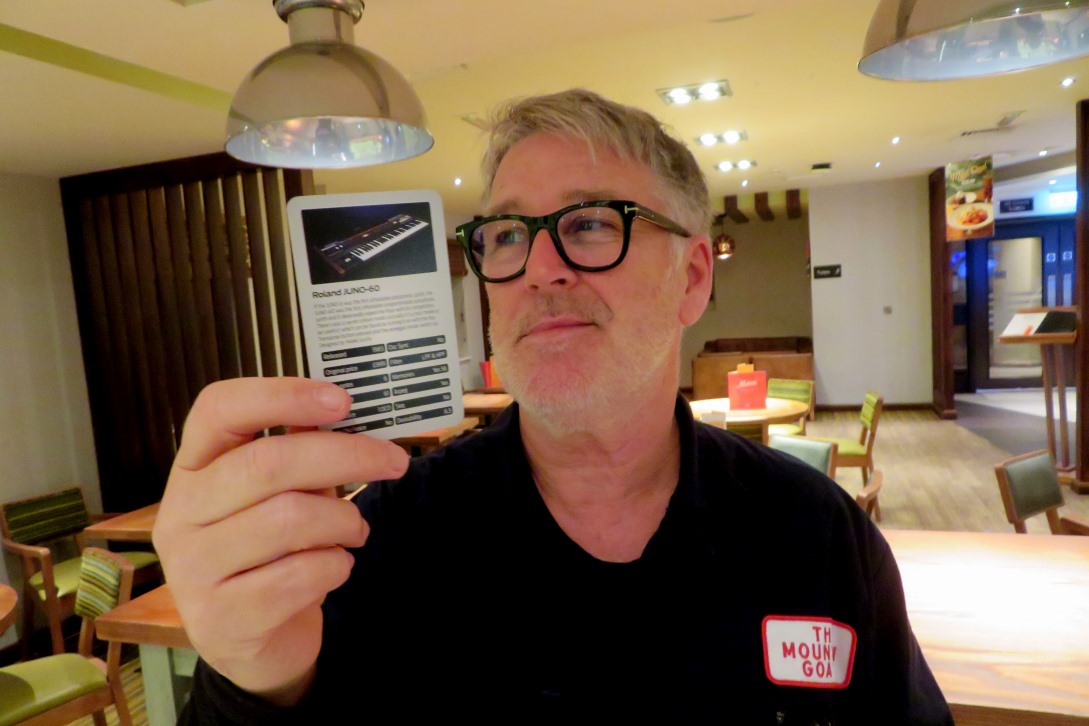
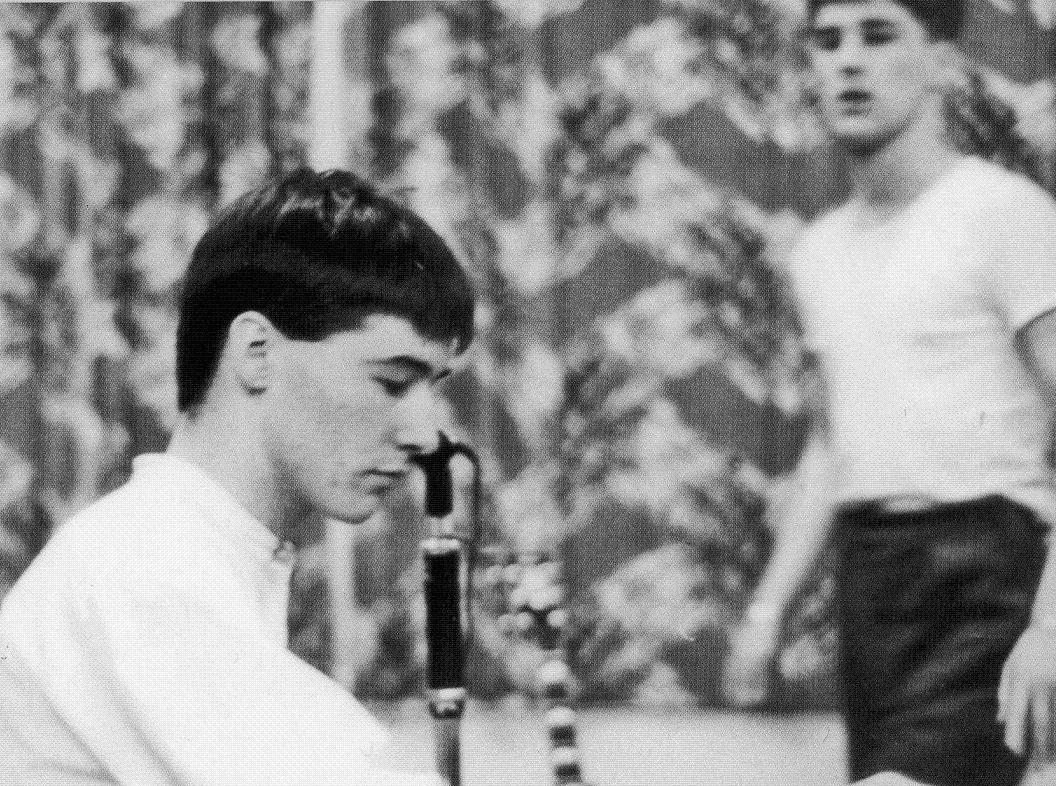
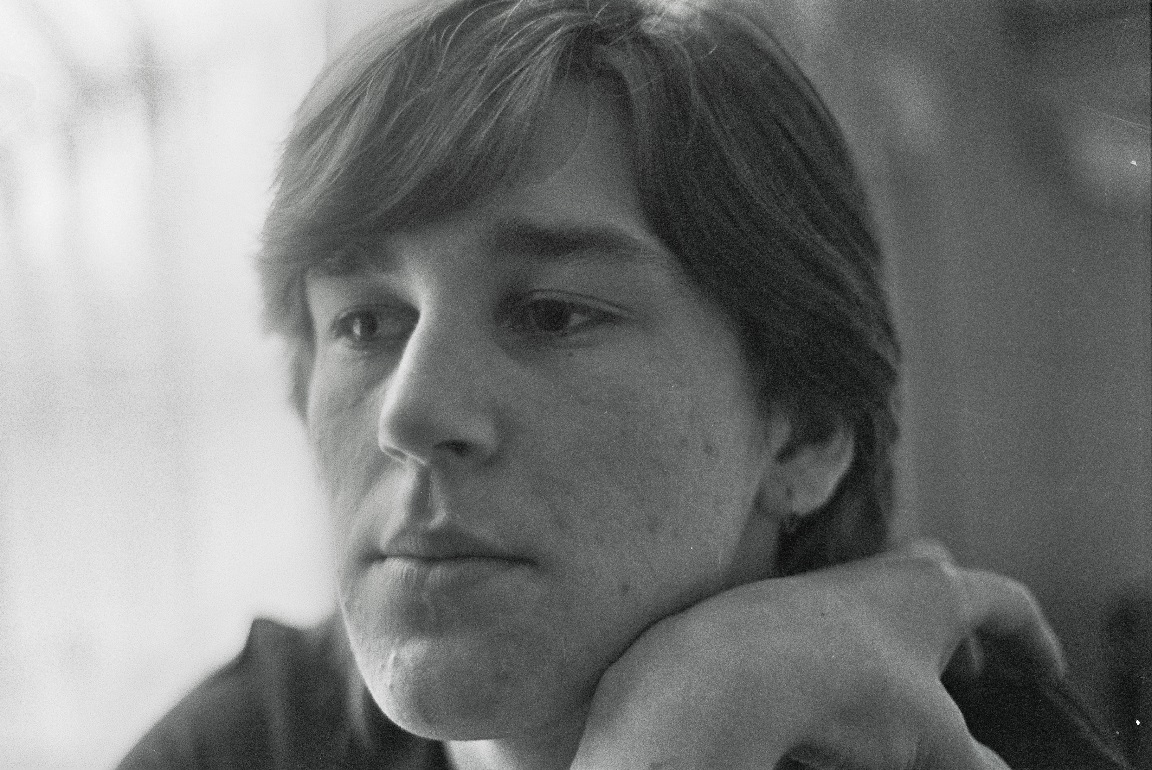
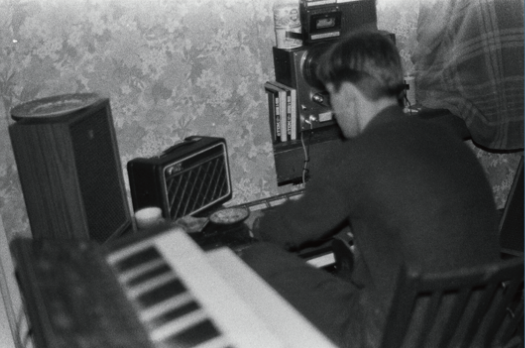
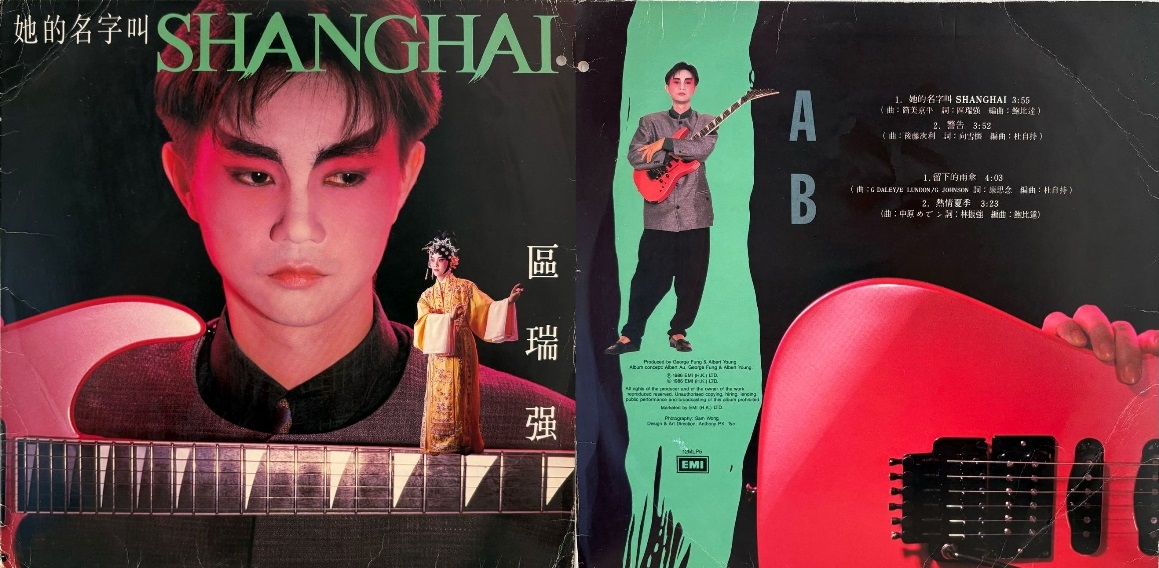
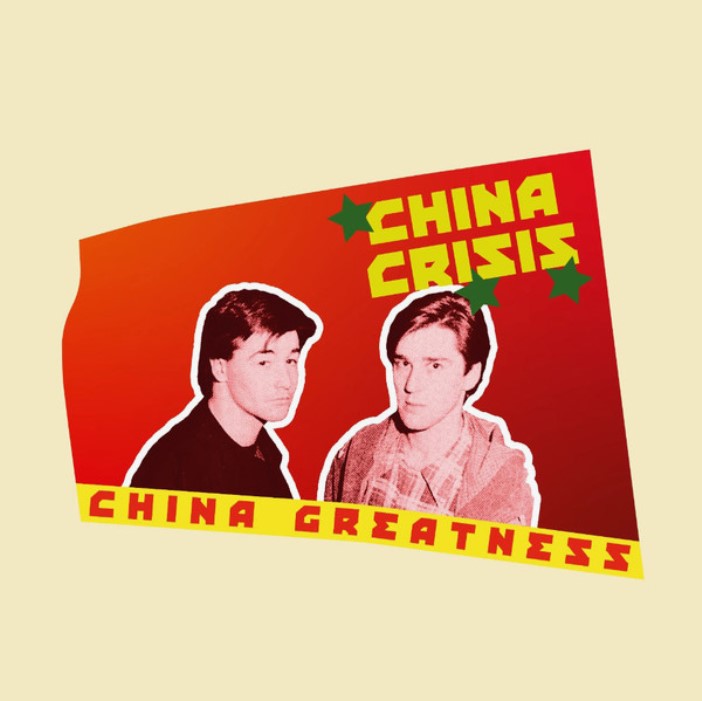
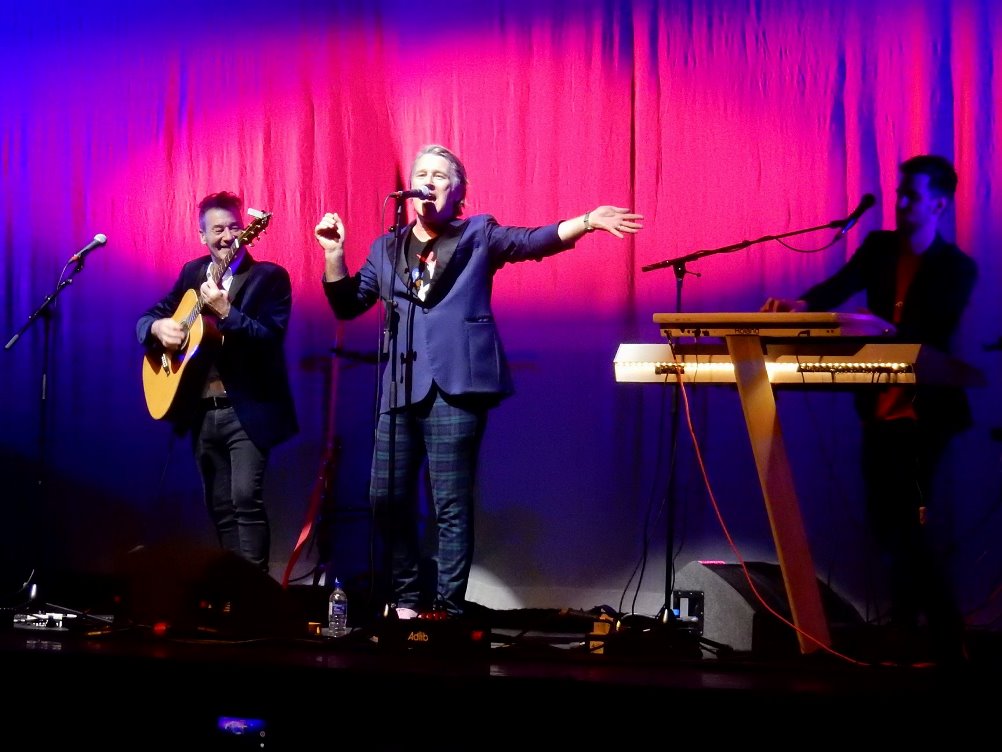
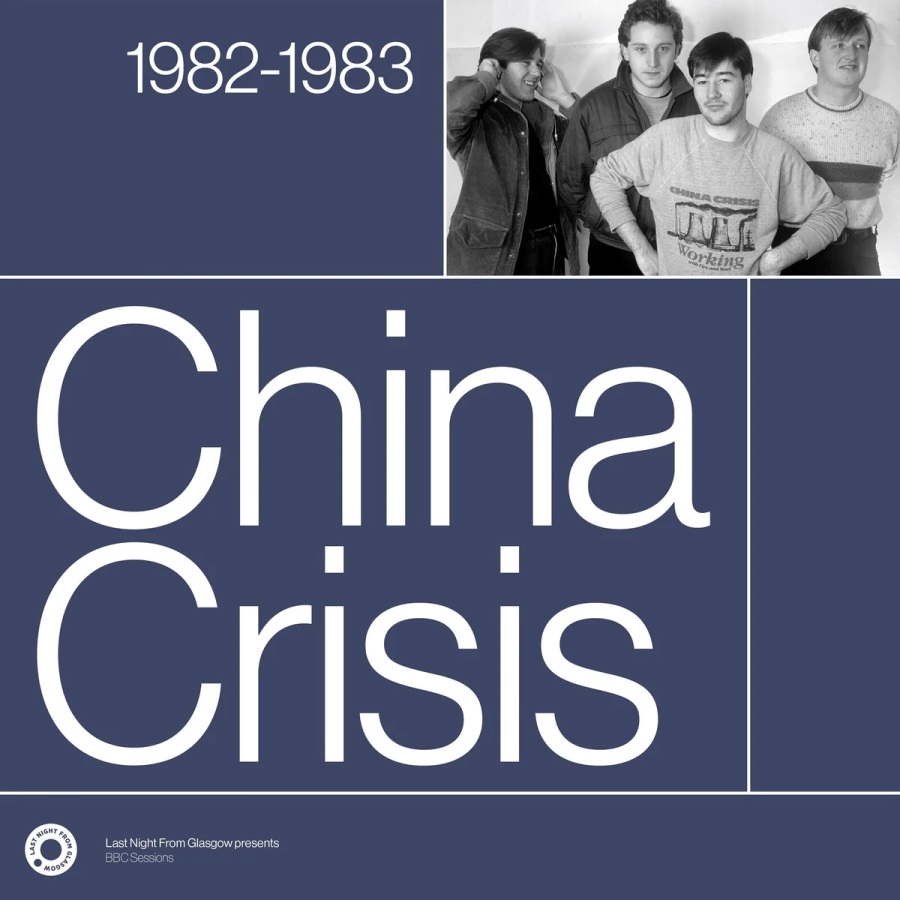
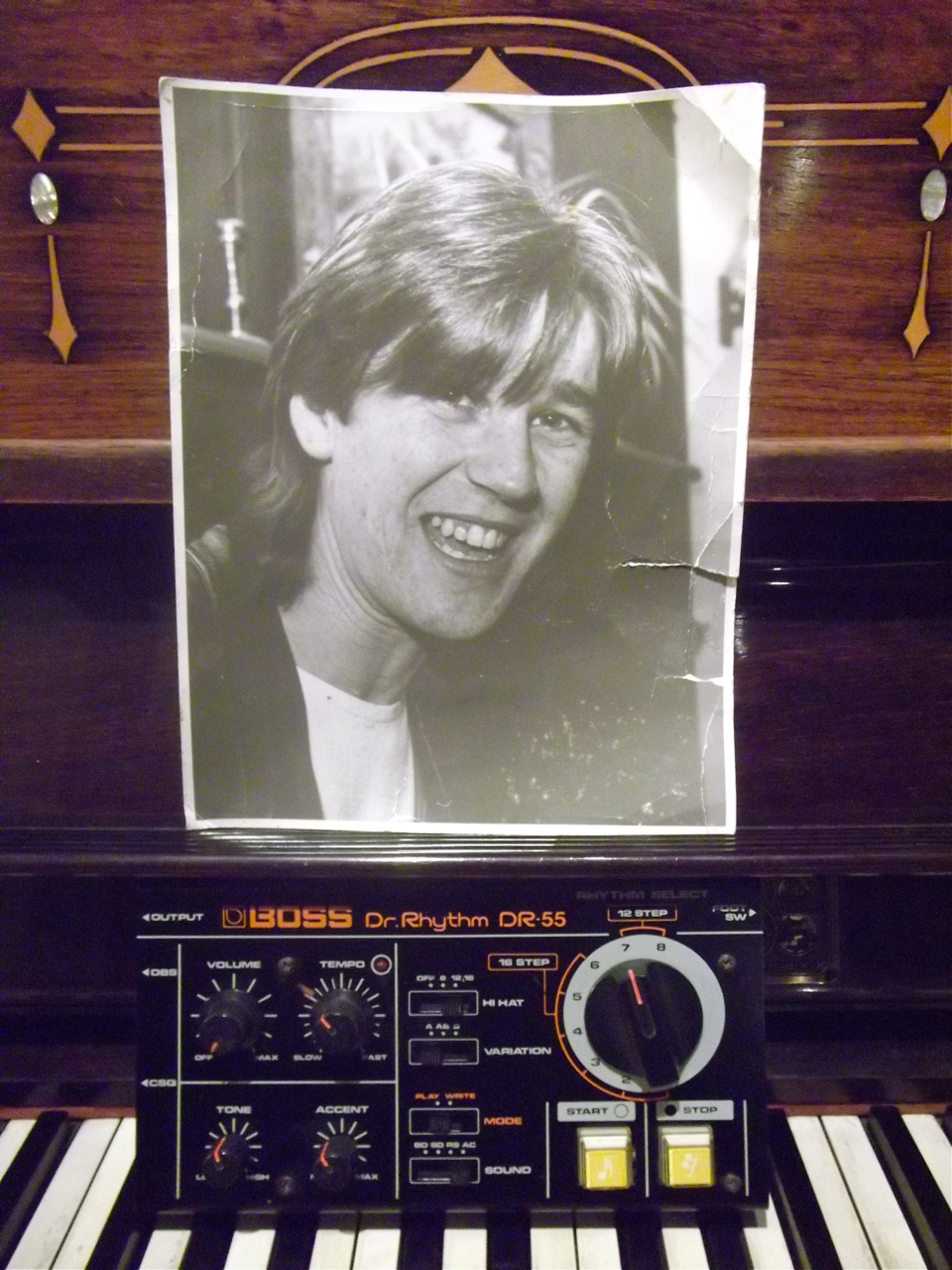
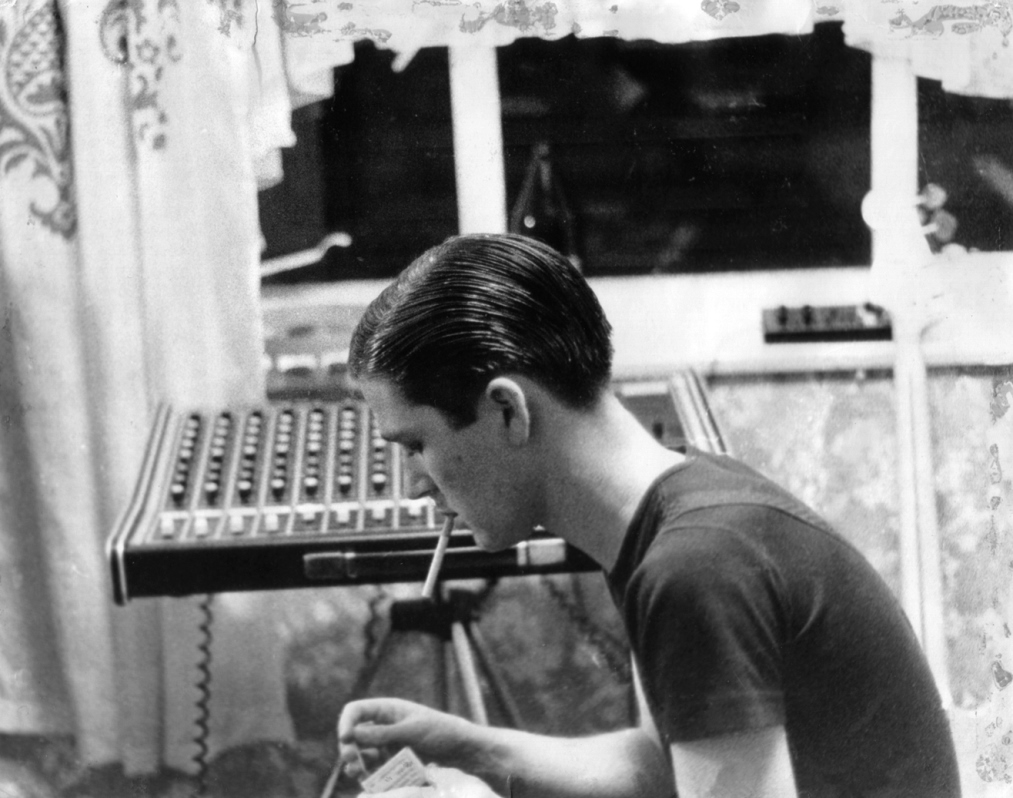
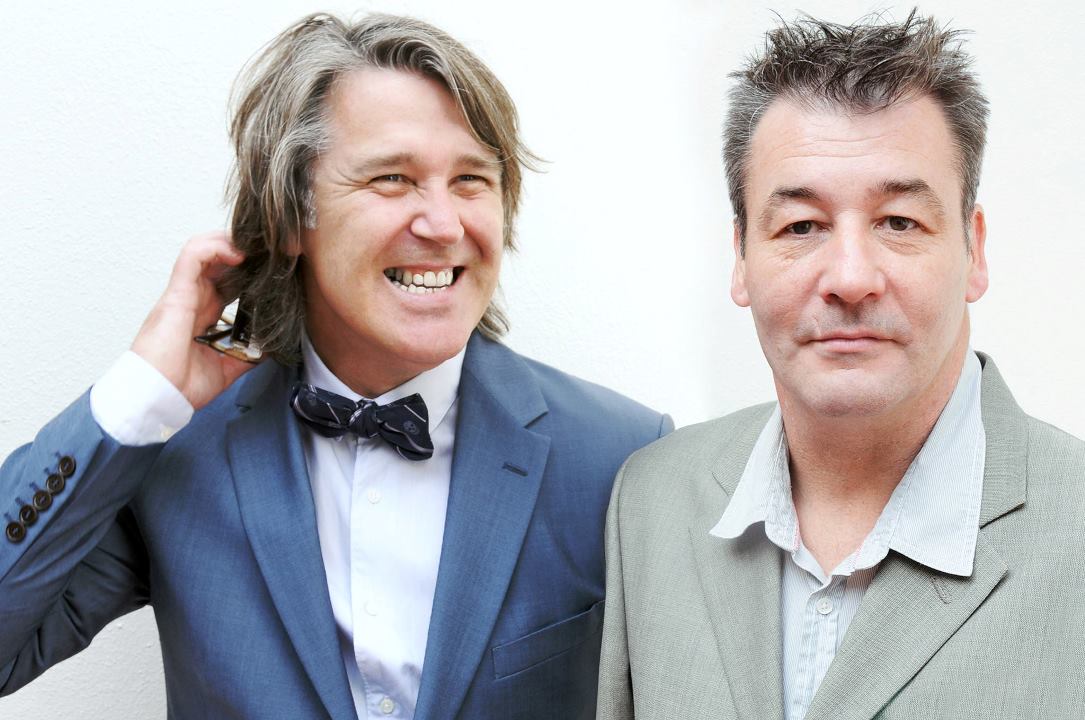
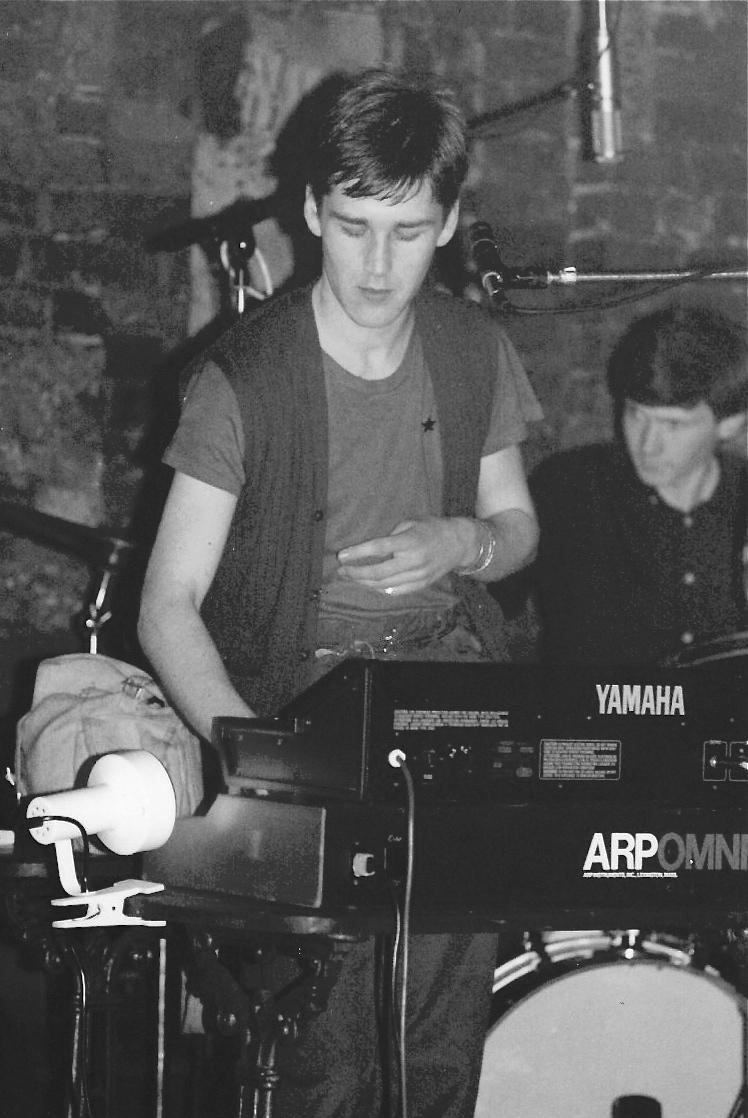

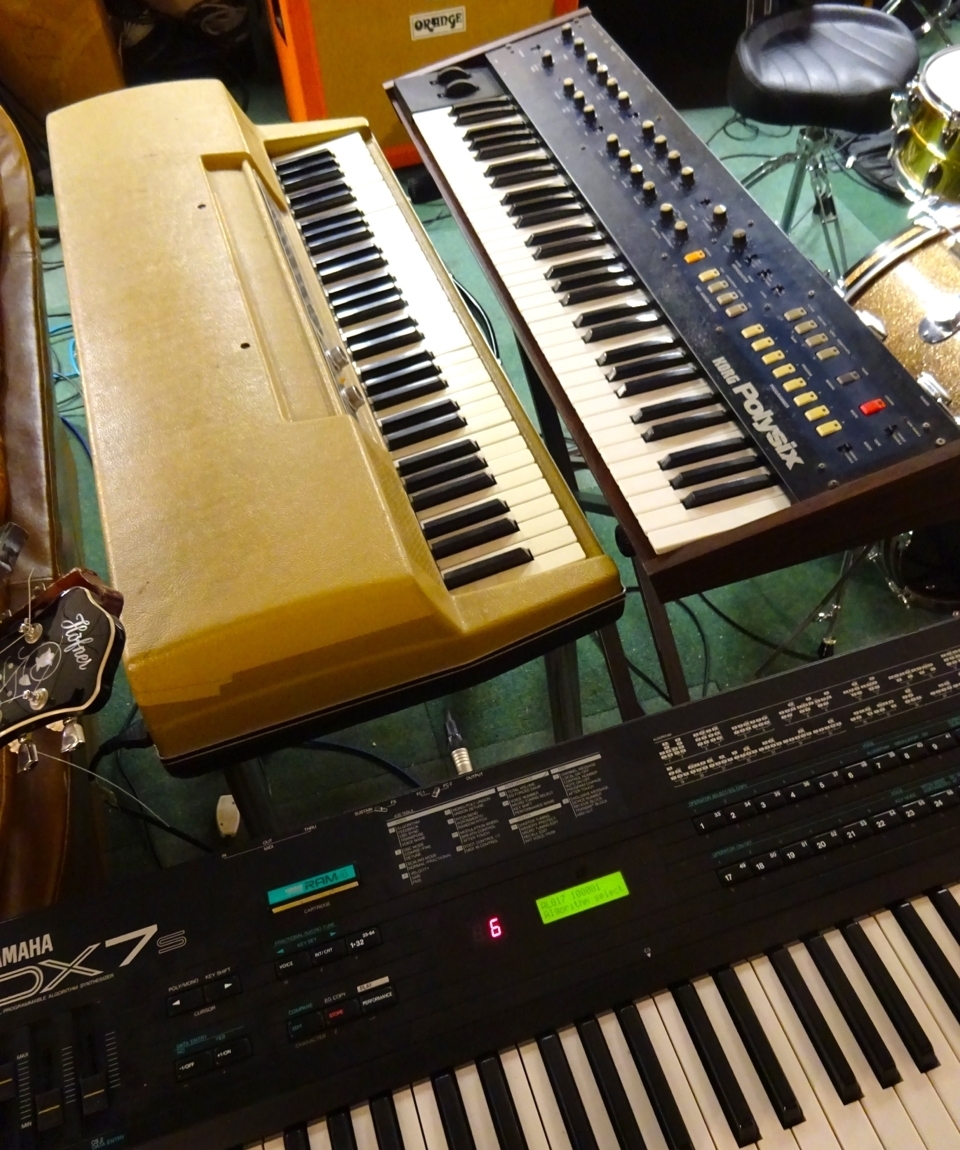
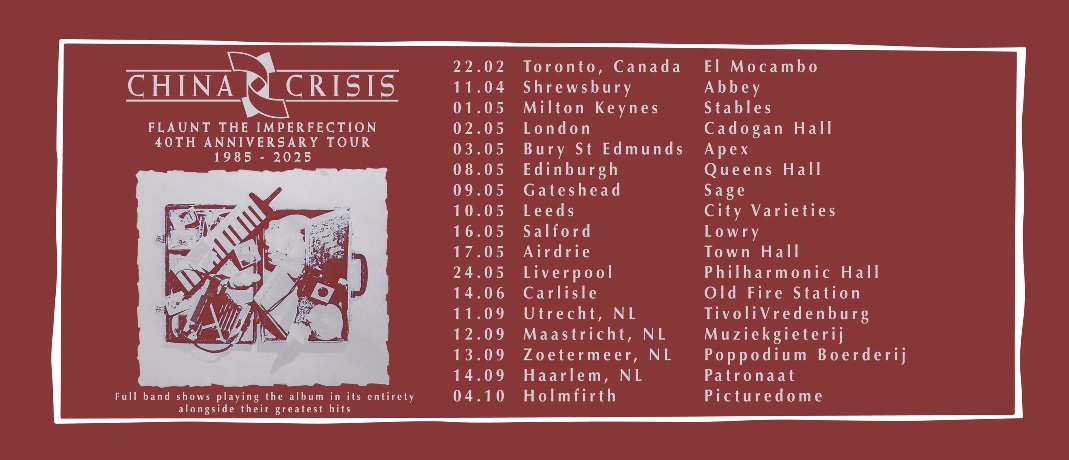
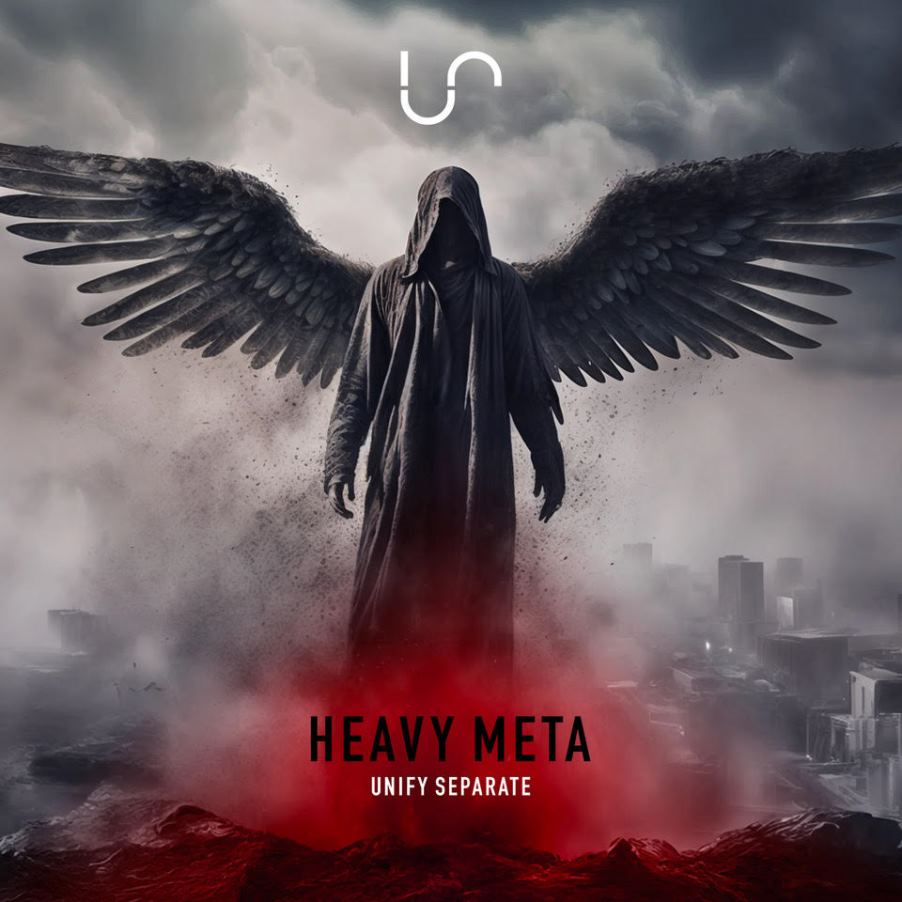
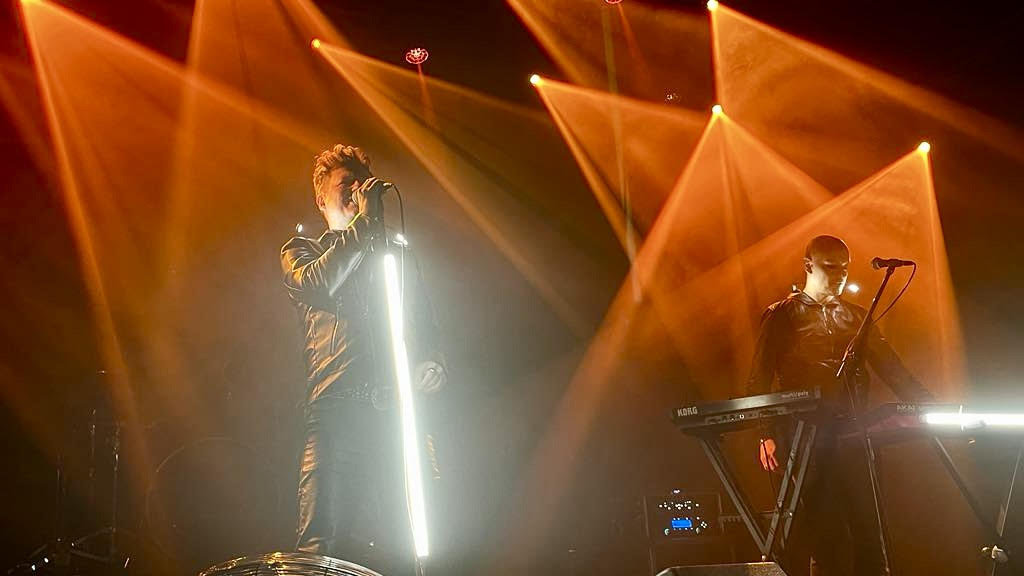


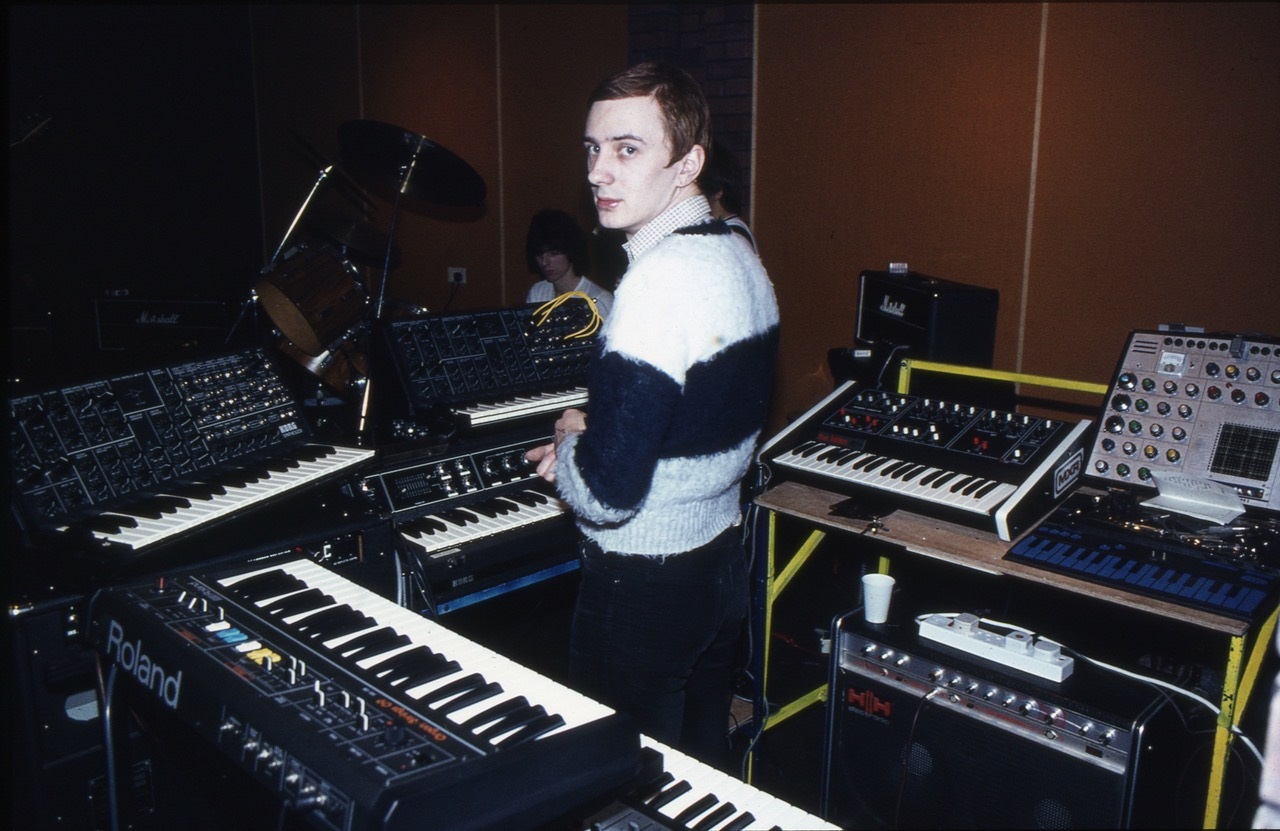
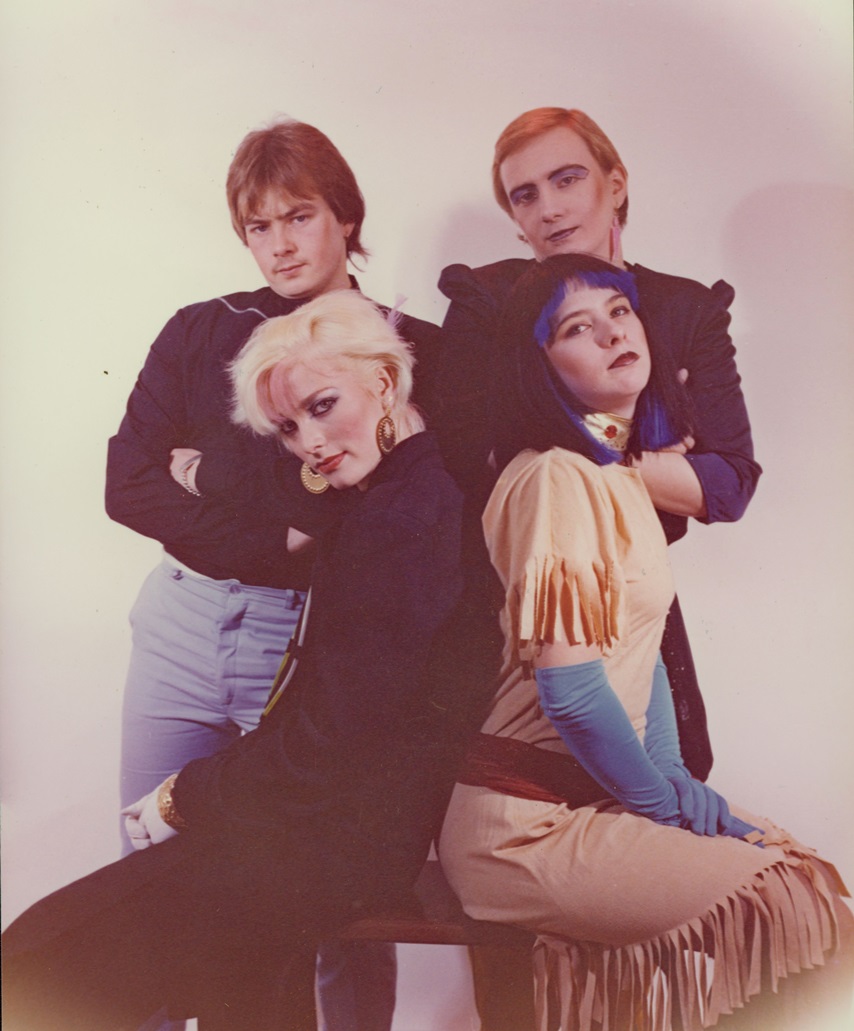
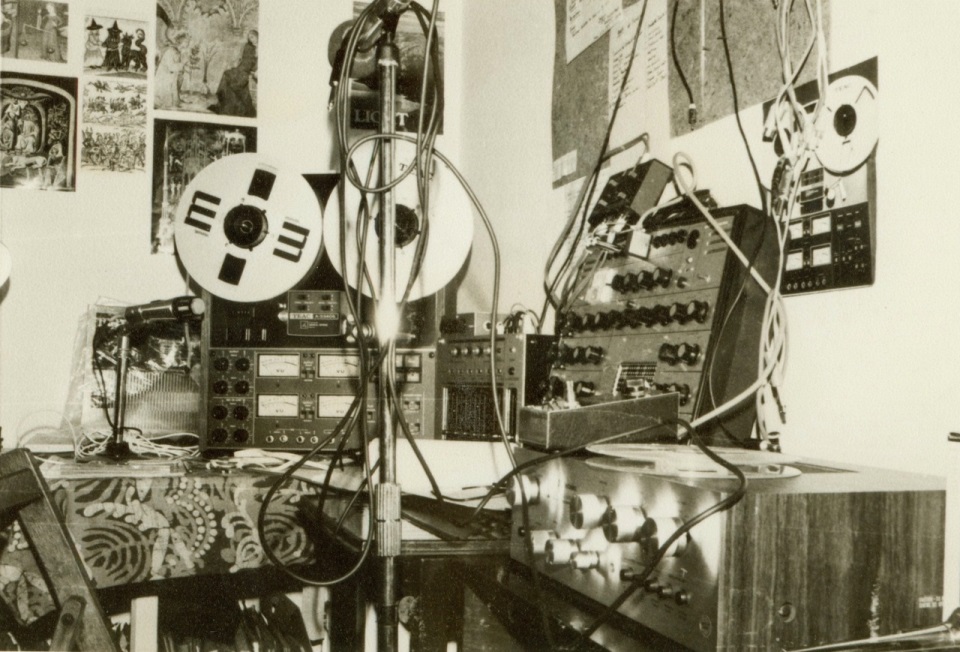

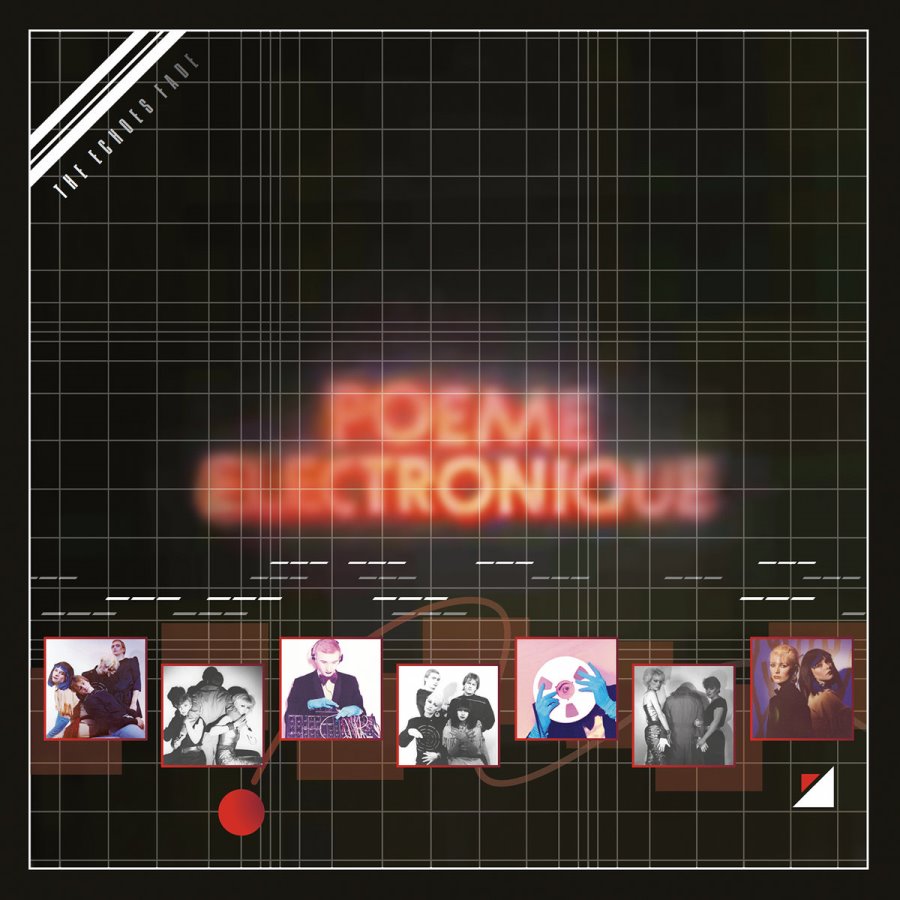

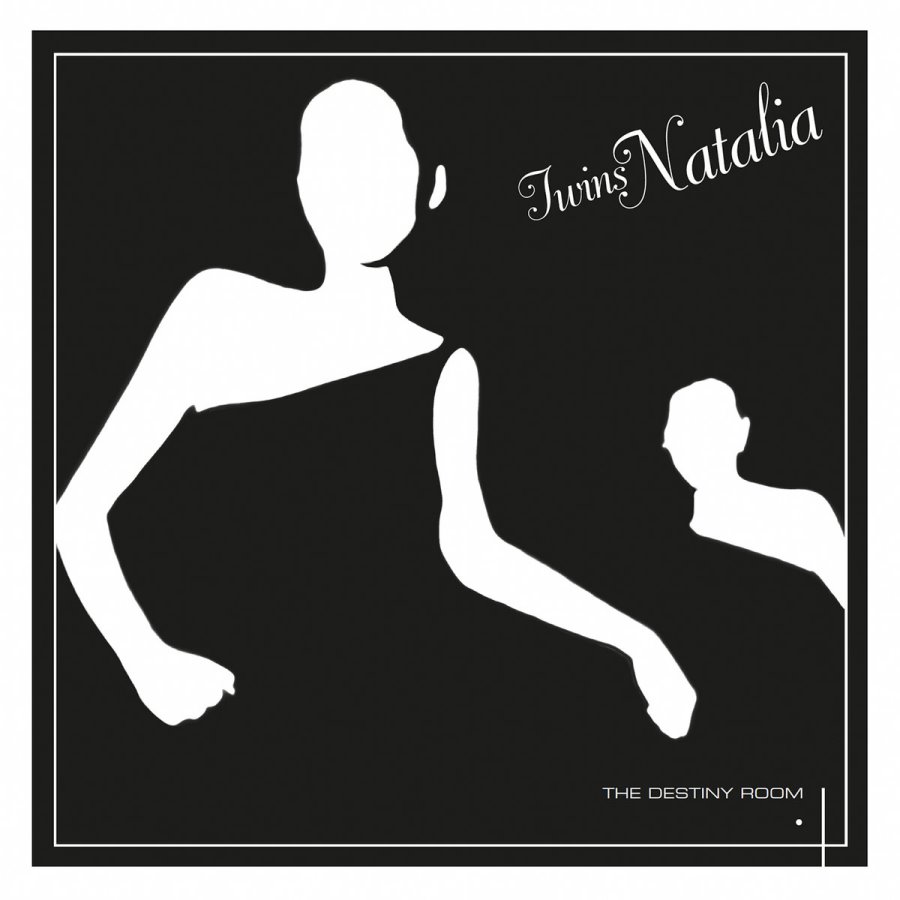
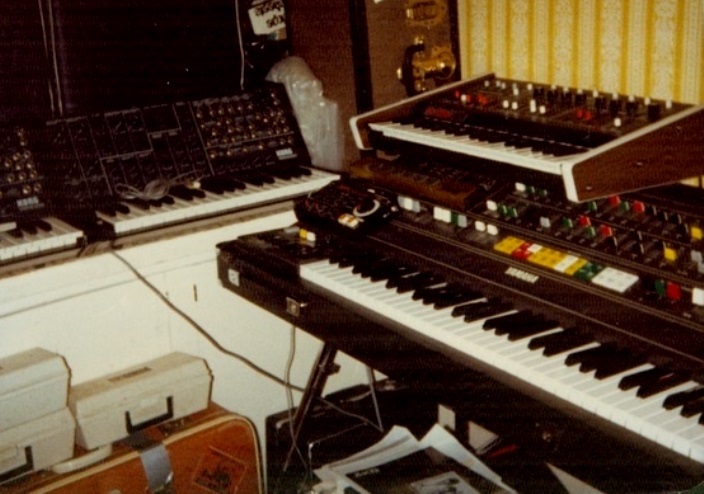
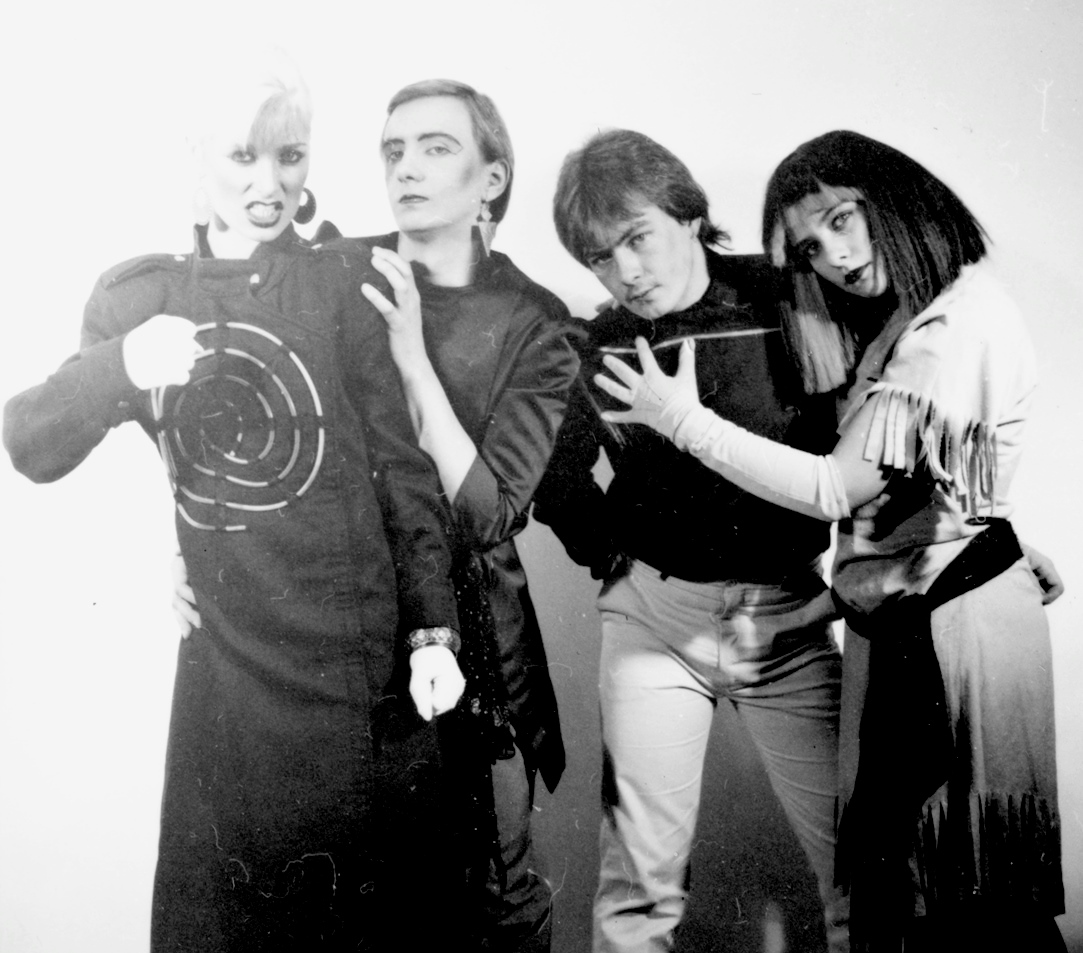
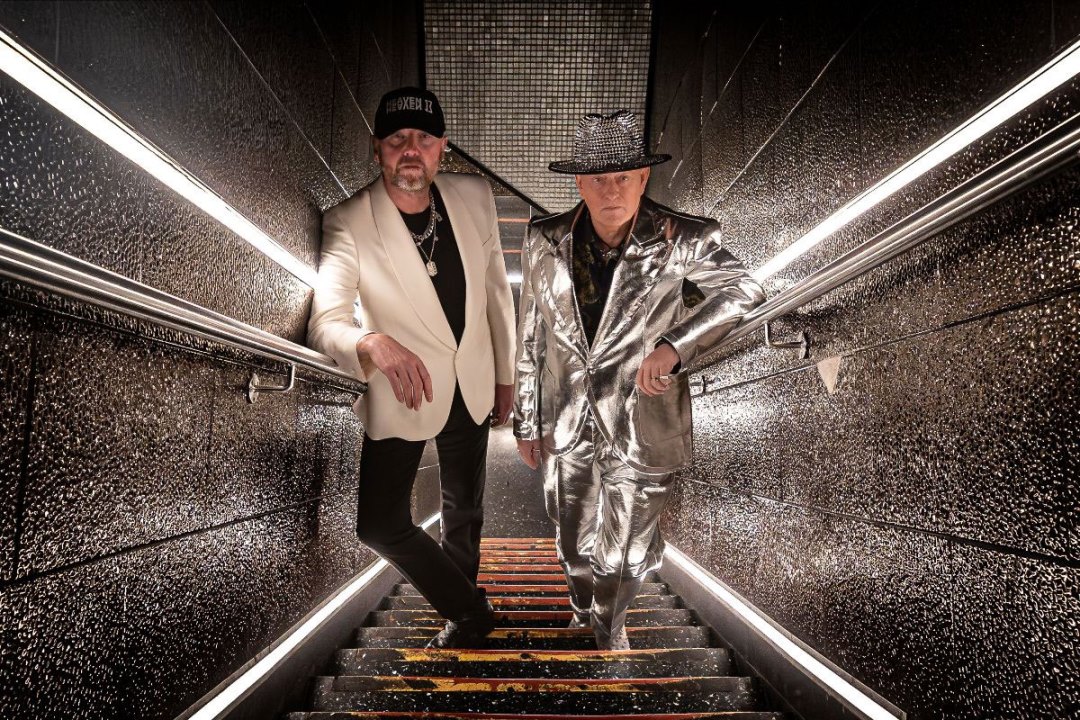
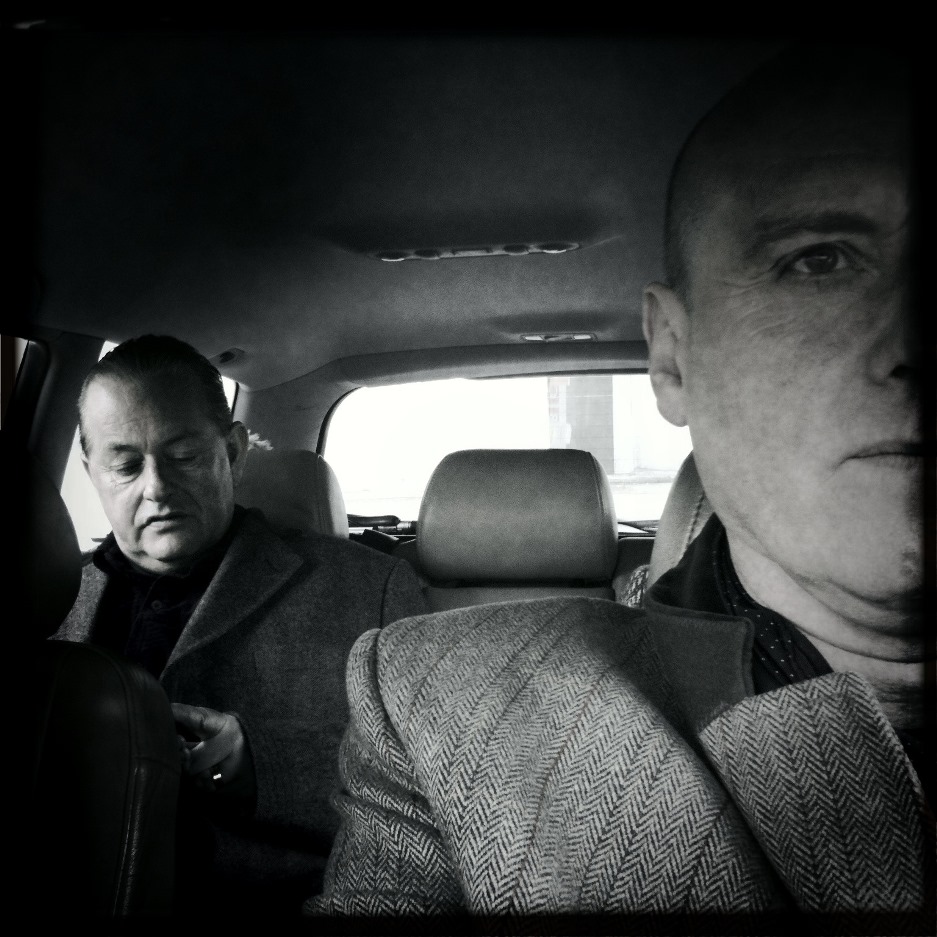
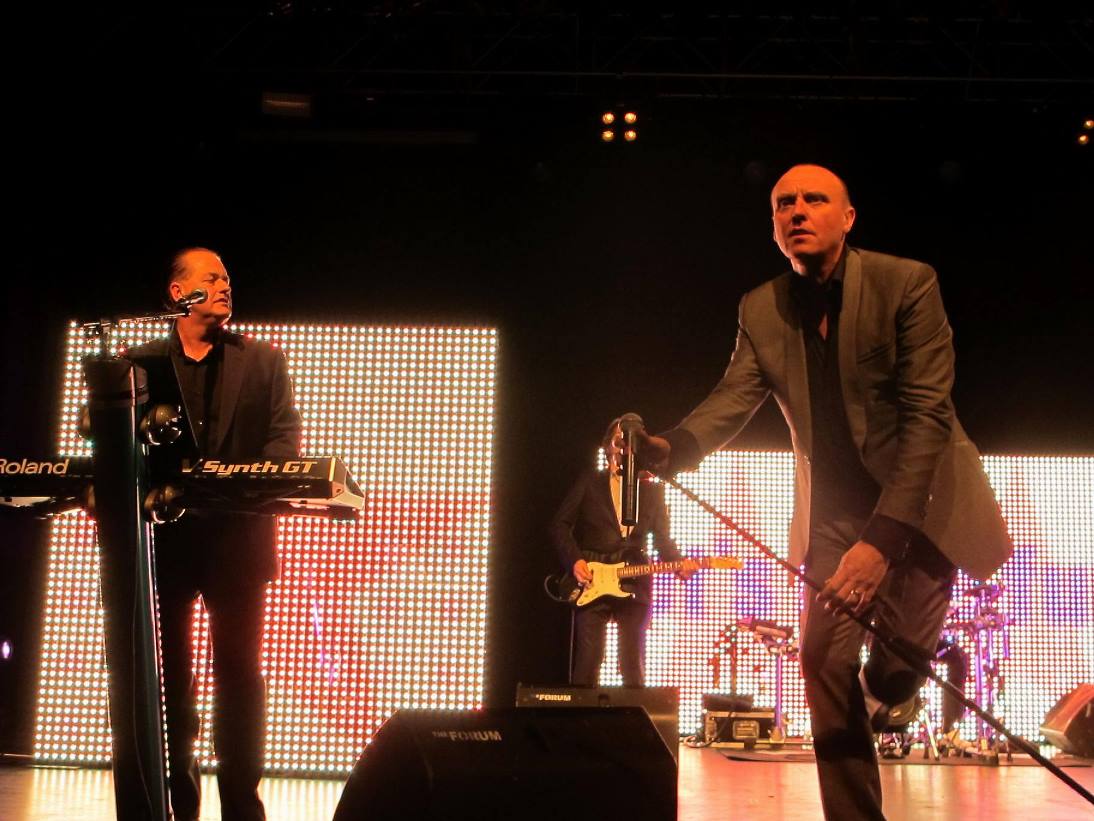
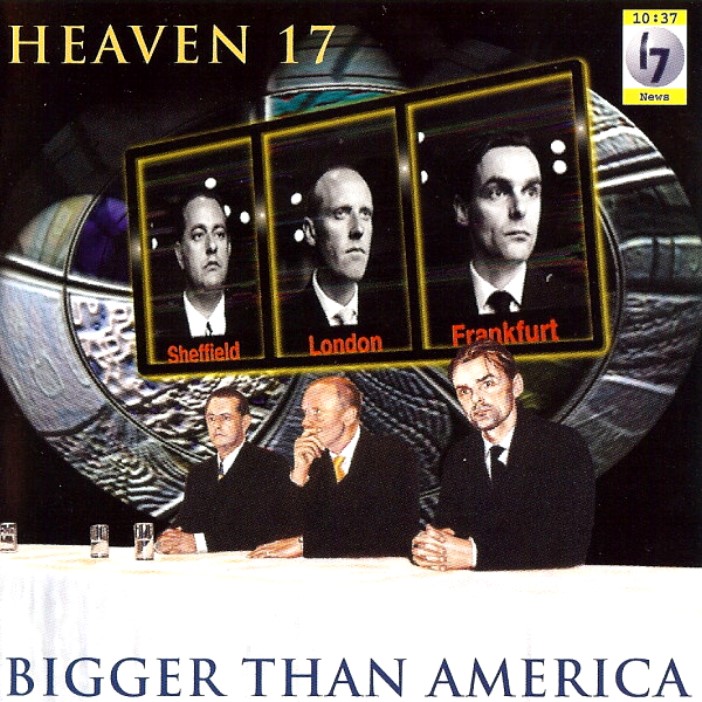
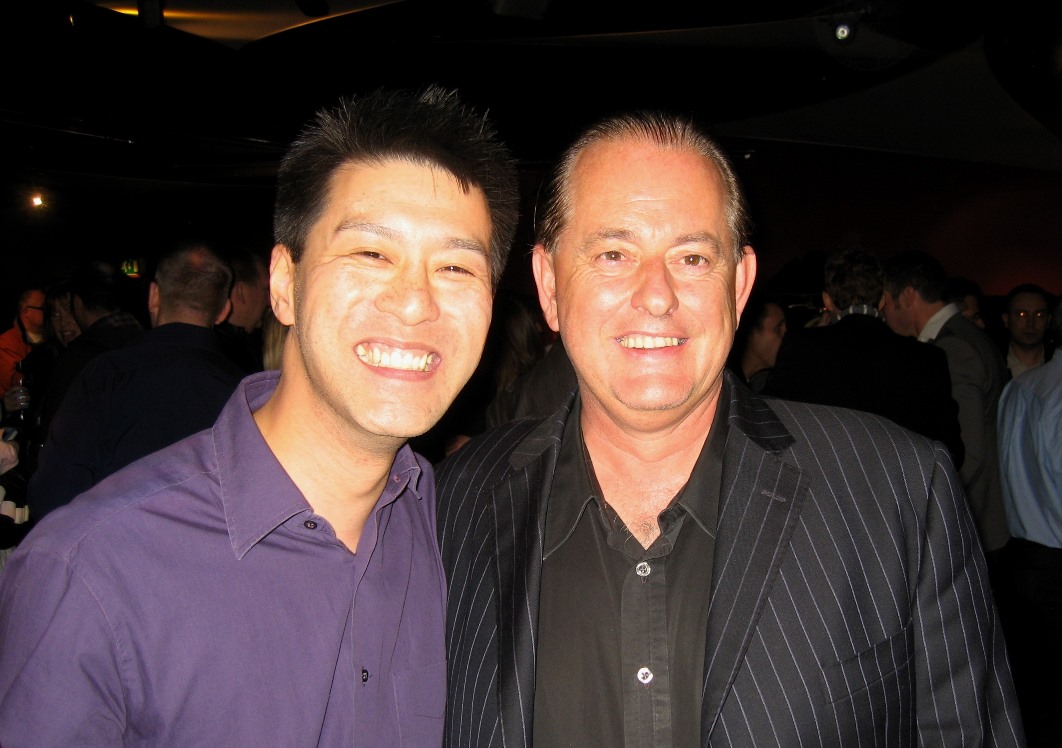
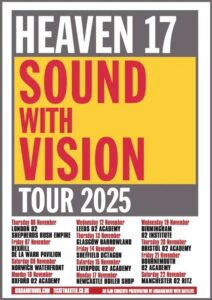
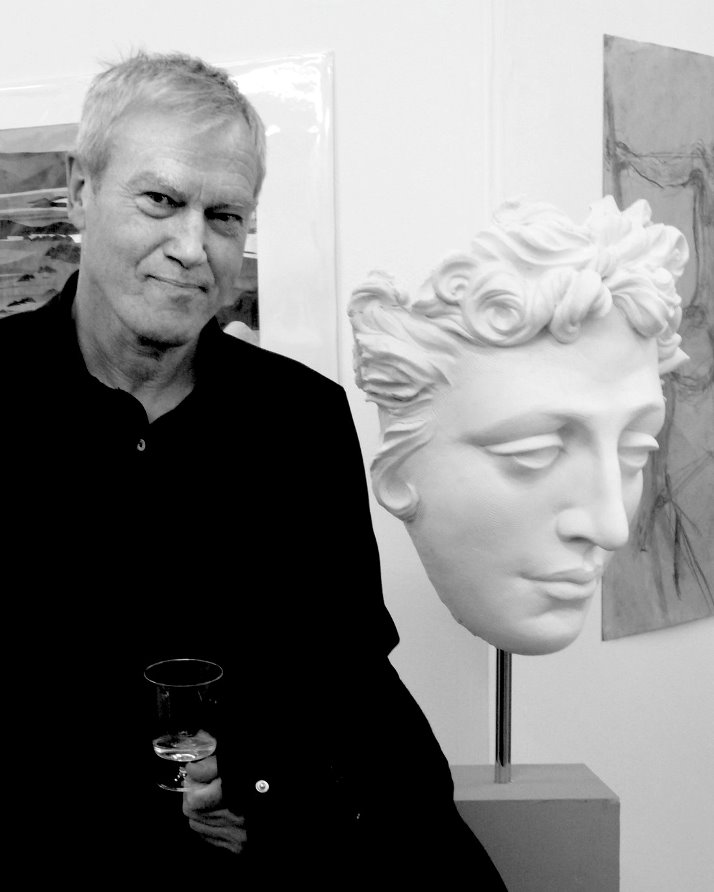
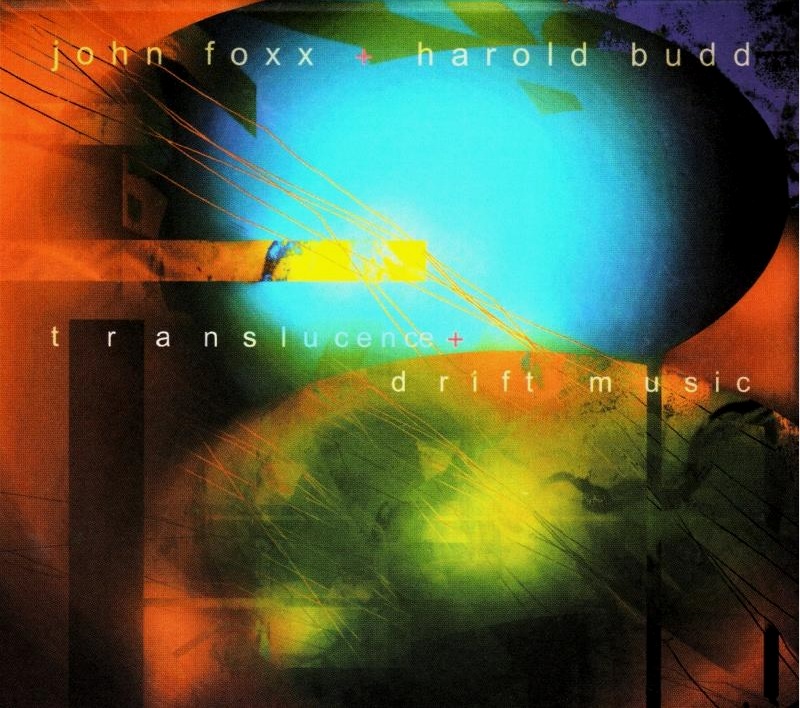
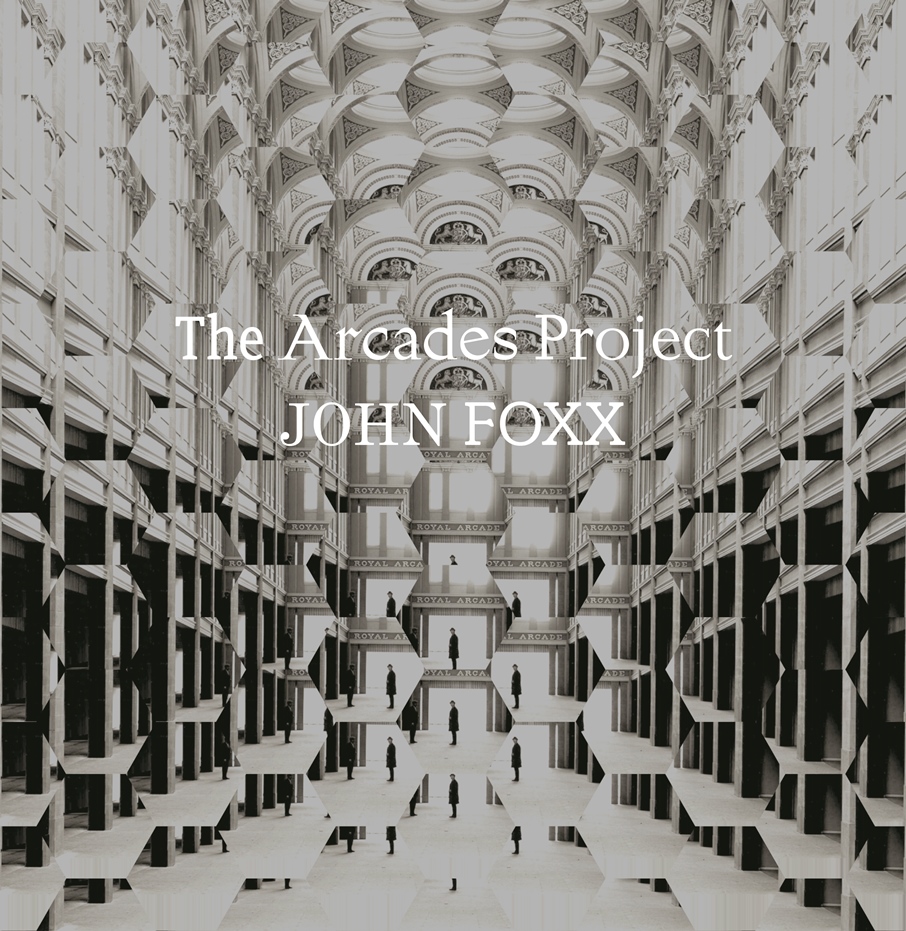
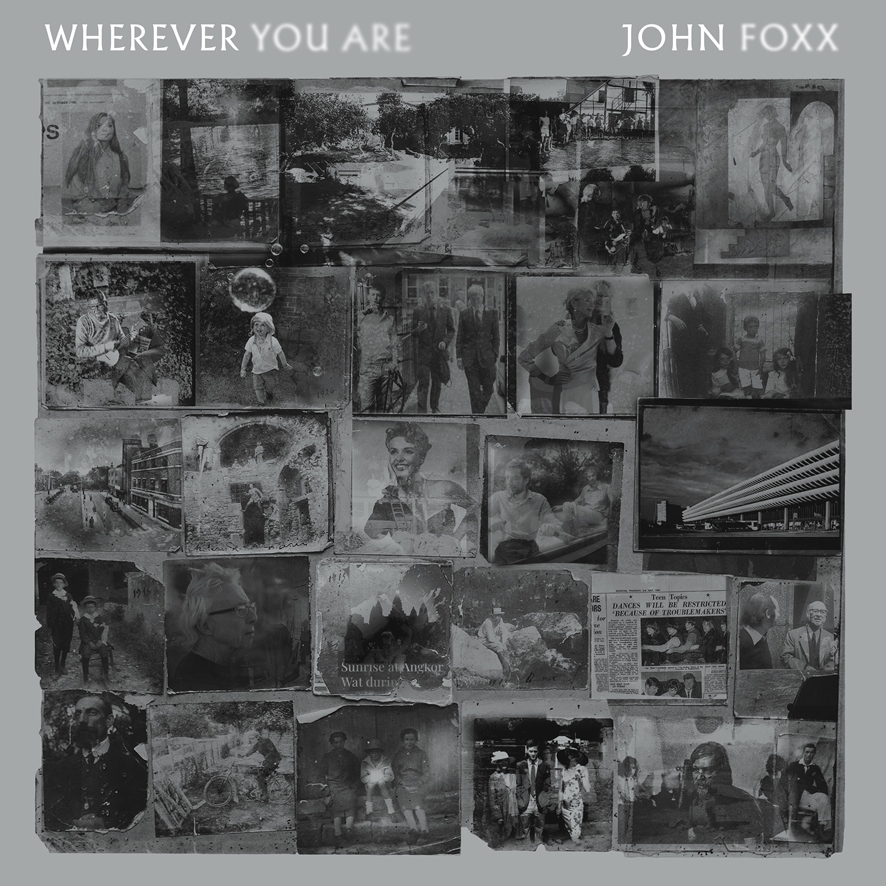

Follow Us!